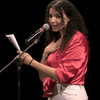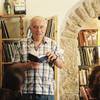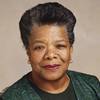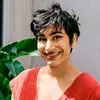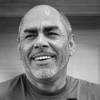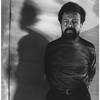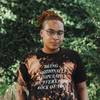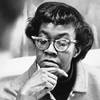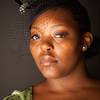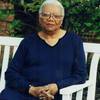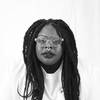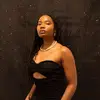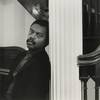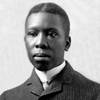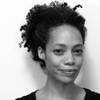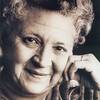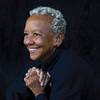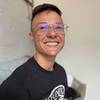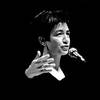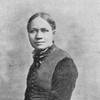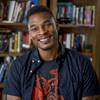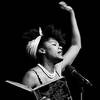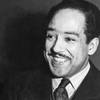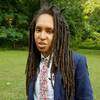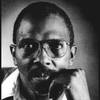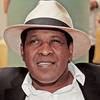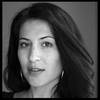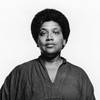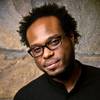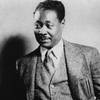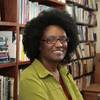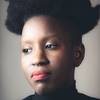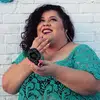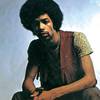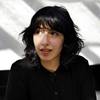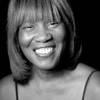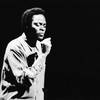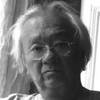Filter By
Afghan Funeral in Paris
The aunts here clink Malbec glasses
and parade their grief with musky, expensive scents
that whisper in elevators and hallways.
Each natural passing articulates
the unnatural: every aunt has a son
who fell, or a daughter who hid in rubble
for two years, until that knock of officers
holding a bin bag filled with a dress
and bones. But what do I know?
I get pedicures and eat madeleines
while reading “Swann’s Way.” When I tell
one aunt I’d like to go back,
she screams It is not yours to want.
Have some cream cheese with that, says another.
Oh, what wonder to be alive and see
my father’s footprints in his sister’s garden.
He’s furiously scissoring the hyacinths,
saying All the time when the tele-researcher asks him
How often do you think your life
is a mistake? During the procession, the aunts’ wails
vibrate: wires full of crows in heavy wind.
I hate every plumed minute of it. God invented
everything out of nothing, but the nothing
shines through, said Paul Valéry. Paris never charmed me,
but when some stranger asks
if it stinks in Afghanistan, I am so shocked
that I hug him. And he lets me,
his ankles briefly brushing against mine.
Ode to the Head Nod
the slight angling up of the forehead
neck extension quick jut of chin
meeting the strangers’ eyes
a gilded curtsy to the sunfill in another
in yourself tithe of respect
in an early version the copy editor deleted
the word “head” from the title
the copy editor says it’s implied
the copy editor means well
the copy editor means
she is only fluent in one language of gestures
i do not explain i feel sad for her
limited understanding of greetings & maybe
this is why my acknowledgements are so long;
didn’t we learn this early?
to look at white spaces
& find the color
thank god o thank god for
you
are here.
Bilingual
Because I speak Spanish
I can listen to my grandmother’s stories
and say familia, madre, amor.
Because I speak English
I can learn from my teacher
and say I love school.
Because I am bilingual
I can read libros and books,
I have amigos and friends,
I enjoy canciones and songs,
juegos and games,
and have twice as much fun.
And someday,
because I speak two languages,
I will be able to do twice as much,
to help twice as many people
and be twice as good in what I do.
The Star Spanglish Banner
Oh say can you see
Miguel wants to learn the Star-Spangled Banner.
Miguel was the last fourth grader to migrate
into my English as a second language course,
and is the first to raise his hand for every question.
But Miguel views letters in a different way than most.
Because there are a lot of words in Spanish
that do not exist in English,
he learns how to pack them in a suitcase and forget.
Because many phrases translate backwards
when crossing over from Spanish to English,
throughout the whole song,
he tends to say things in the wrong order.
So when I ask him to sing the second verse,
it sounds like
And the rocket's red glare
We watched our home
Bursting in air
It gave proof to the night
that the flag was still theirs
They say music is deeply intertwined with how we remember.
Miguel hears the marimba and learns the word home,
hears his mother's accent being mocked and learns the words shame,
hears his mother's weeping and learns the word sacrifice.
He asks, what does the word America mean?
What does the word dream mean?
I say two words with the same meaning are what we call synonyms.
You could say America is a dream,
something we all feel silly for believing in.
He says, teach me.
Teach me how to say bandera.
Teach me how to say star.
Teach me how to hide my country behind the consonants
that do not get pronounced.
Miss Angelica,
teach the letters to just flee from my lips like my parents,
and build a word out of nothing.
In my tongue, we do not pronounce the letter H.
Home is not a sound my voice knows how to make.
It's strange what our memories hold on to.
It's strange what makes it over the border
to the left side of the brain,
what our minds do not let us forget,
how an accent is just a mother tongue
that refuses to let her child go.
The language barrier is a 74 mile wall
lodged in the back of Miguel's throat,
the bodies of words so easily lost in the translation.
Oh, say for whom does that
star-spangled banner yet wave
Give back the land to the brave
and let us make a home for us free.
In a Neighborhood in Los Angeles
translated by Francisco Aragón
I learned
Spanish
from my grandma
mijito
don’t cry
she’d tell me
on the mornings
my parents
would leave
to work
at the fish
canneries
my grandma
would chat
with chairs
sing them
old
songs
dance
waltzes with them
in the kitchen
when she’d say
niño barrigón
she’d laugh
with my grandma
I learned
to count clouds
to recognize
mint leaves
in flowerpots
my grandma
wore moons
on her dress
Mexico’s mountains
deserts
ocean
in her eyes
I’d see them
in her braids
I’d touch them
in her voice
smell them
one day
I was told:
she went far away
but still
I feel her
with me
whispering
in my ear:
mijito
LA Prayer
April 1992
something
was wrong
when buses
didn’t come
streets
were
no longer
streets
how easy
hands
became
weapons
blows
gunfire
rupturing
the night
the more
we run
the more
we burn
o god
show us
the way
lead us
spare us
from ever
turning into
walking
matches
amidst
so much
gasoline
beholder
wild how I am created and undone
by each discerning eye—the creep
at the pet store clocks me as boricua,
sees my pidgin skin as proof of kin,
thinks this will coax a flirty response.
my stepfather is the color of midnight,
dark like the cosmos or god. he sees
me as family, regardless of the paper
bag test and our respective results.
when we are out together I hope
people think I am his child, too.
my mom and me, that one’s easy.
the realtor says we look exactly the same
but I’m mixed with … something
else. sometimes I trace the slope
of my negro nose, rounded like
a drum. you can find my ancestors
in the kitchen at the back of my
scalp. nestled like knots. plaited
bloodlines unwind at my neck.
on the sidewalk, I empty
meager offerings into
a man’s styrofoam cup.
he laughs—come on, white girl,
I know you got more than that.
The Diameter Of The Bomb
The diameter of the bomb was thirty centimeters
and the diameter of its effective range about seven meters,
with four dead and eleven wounded.
And around these, in a larger circle
of pain and time, two hospitals are scattered
and one graveyard. But the young woman
who was buried in the city she came from,
at a distance of more than a hundred kilometers,
enlarges the circle considerably,
and the solitary man mourning her death
at the distant shores of a country far across the sea
includes the entire world in the circle.
And I won’t even mention the crying of orphans
that reaches up to the throne of God and
beyond, making a circle with no end and no God.
Alone
Lying, thinking
Last night
How to find my soul a home
Where water is not thirsty
And bread loaf is not stone
I came up with one thing
And I don't believe I'm wrong
That nobody,
But nobody
Can make it out here alone.
Alone, all alone
Nobody, but nobody
Can make it out here alone.
There are some millionaires
With money they can't use
Their wives run round like banshees
Their children sing the blues
They've got expensive doctors
To cure their hearts of stone.
But nobody
No, nobody
Can make it out here alone.
Alone, all alone
Nobody, but nobody
Can make it out here alone.
Now if you listen closely
I'll tell you what I know
Storm clouds are gathering
The wind is gonna blow
The race of man is suffering
And I can hear the moan,
'Cause nobody,
But nobody
Can make it out here alone.
Alone, all alone
Nobody, but nobody
Can make it out here alone.
Phenomenal Woman
Pretty women wonder where my secret lies.
I’m not cute or built to suit a fashion model’s size
But when I start to tell them,
They think I’m telling lies.
I say,
It’s in the reach of my arms,
The span of my hips,
The stride of my step,
The curl of my lips.
I’m a woman
Phenomenally.
Phenomenal woman,
That’s me.
I walk into a room
Just as cool as you please,
And to a man,
The fellows stand or
Fall down on their knees.
Then they swarm around me,
A hive of honey bees.
I say,
It’s the fire in my eyes,
And the flash of my teeth,
The swing in my waist,
And the joy in my feet.
I’m a woman
Phenomenally.
Phenomenal woman,
That’s me.
Men themselves have wondered
What they see in me.
They try so much
But they can’t touch
My inner mystery.
When I try to show them,
They say they still can’t see.
I say,
It’s in the arch of my back,
The sun of my smile,
The ride of my breasts,
The grace of my style.
I’m a woman
Phenomenally.
Phenomenal woman,
That’s me.
Now you understand
Just why my head’s not bowed.
I don’t shout or jump about
Or have to talk real loud.
When you see me passing,
It ought to make you proud.
I say,
It’s in the click of my heels,
The bend of my hair,
the palm of my hand,
The need for my care.
’Cause I’m a woman
Phenomenally.
Phenomenal woman,
That’s me.
If They Should Come For Us
these are my people & I find
them on the street & shadow
through any wild all wild
my people my people
a dance of strangers in my blood
the old woman’s sari dissolving to wind
bindi a new moon on her forehead
I claim her my kin & sew
the star of her to my breast
the toddler dangling from stroller
hair a fountain of dandelion seed
at the bakery I claim them too
the Sikh uncle at the airport
who apologizes for the pat
down the Muslim man who abandons
his car at the traffic light drops
to his knees at the call of the Azan
& the Muslim man who drinks
good whiskey at the start of maghrib
the lone khala at the park
pairing her kurta with crocs
my people my people I can’t be lost
when I see you my compass
is brown & gold & blood
my compass a Muslim teenager
snapback & high-tops gracing
the subway platform
Mashallah I claim them all
my country is made
in my people’s image
if they come for you they
come for me too in the dead
of winter a flock of
aunties step out on the sand
their dupattas turn to ocean
a colony of uncles grind their palms
& a thousand jasmines bell the air
my people I follow you like constellations
we hear glass smashing the street
& the nights opening dark
our names this country’s wood
for the fire my people my people
the long years we’ve survived the long
years yet to come I see you map
my sky the light your lantern long
ahead & I follow I follow
Old Country (Edited)
Old Country Buffet, where our family
went on the days we saved enough money.
Everyone was in a good mood, even Ullu—
our uncle who never smiled or took off his coat
& dyed his hair black every two weeks
so we couldn’t tell how old he was. We marched
single file towards the gigantic red lettering
across the gravel parking lot to announce
our arrival. We, children carrying our rectangle
backpacks brimming with homework, calculators
& Lisa Frank trapper keepers, for we knew this was a day
without escape, spread out across all the booths
possible while our family ate & ate & snuck
food into the Tupperware they smuggled in
& no matter how we begged & whined
or the waitresses yelled or threatened to charge
us more money we weren’t leaving
until my greedy family had their fill.
O, Old Country! The only place
we could get dessert & eat as much of it
as we wanted before our actual meal.
The only place we didn’t have to eat all
the meat on our plates or else we were accused
of being wasteful, told our husbands
would have as many pimples as rice we left behind.
Here, our family reveled in the American
way of waste, manifest destinied our way
through the mac & cheese, & green bean
casseroles, mythical foods we had only
heard about on TV where American
children rolled their eyes in disgust. Here
we learned how to say I too have had meat loaf
& hate it, evidence we could bring back
to the lunch table as we guessed
what the other kids ate as they scoffed
at our biriyani. Here, the adults told
us if we didn’t like the strawberry shortcake
we could eat the ice cream or jello we could
get a whole plate just to try a bite
to turn up our noses & that was fine.
Here we loosened the drawstrings
on our shalwaars & gained ten pounds.
Here we arrived at the beginning of lunch
hour & stayed until dinner approached
until they made us leave. Here we learned
how to be American & say:
we got the money
we’re here to stay.
A Message from the Guardians of the Cedars
“It is the duty of each Lebanese to kill one Palestinian.”
–Slogan used by the ultranationalist anti-Palestinian militia, known for
their cruelty and war crimes during the Lebanese Civil War
Lebanon, you are not Arab.
And those Palestinians
gnawing your heel bone
are not your sons.
Their teeth spark up at you.
Karantina and Tel al-Zaatar—
every flame scrolled over
those camps was a love letter.
Lebanon, does your love not burn?
Drive to Jounieh,
your tires gurge. An overpass
like a balaclava’s cut eyes.
Parched riverbeds sated
with the strange pulp untethered
from our rusted cab.
Lebanon, can you hear them
bleating, bound to the back of the taxi
and dragged up to the motorway?
We are writing your anthem:
the cursive of blood, all
the road singing
a fading heartbeat.
Listen. The body, a pure, shapeless mass
like red clay. Build yourself from it.
Everything will hurt for a while
And the lie is that I survived because parts of me didn’t.
So take all the sorrow you can carry,
like my mother’s cabinets of Slim Fast
and Little Debbies and the weight
we would never lose, how we stood
in front of mirrors and men
hoping one would change our minds
and neither did. Look, here, in her letters
and their cursive of longing: Baby, survive this.
Listen, I was only sixteen and drunk
on wine coolers and teenage invincibility,
limp over a stranger’s bathtub, I was lifted
lifted into a bedroom and birdsong
erupted in the delirious morning light.
Her letters sigh, You’ve lost too much weight.
Your dad is starting to worry. Her letters remind
me it could’ve been worse. When I told her what
happened she asked, Was he cute?
None of us got what we deserved.
Interview with My Father: Names
When someone dies in Tripoli, we write their names on paper
Next to their pictures and post them where others can see.
Walk the street where the names wave the walls,
flutter from windows, buildings gilled with sheets—
breathing paper, beating paper, the streets are paper—
and we don’t know who we’re going to see, whose face
will call from that collage, the hundreds of eyes glancing
all around, as though we could lift them from the pages,
as though we weren’t born into war, too,
as though our religion (blood-bright
in the hands of a checkpoint guard, a flapping wing of paper)
won’t tack us among them—the razed, their names, white light.
Who Understands Me but Me
They turn the water off, so I live without water,
they build walls higher, so I live without treetops,
they paint the windows black, so I live without sunshine,
they lock my cage, so I live without going anywhere,
they take each last tear I have, I live without tears,
they take my heart and rip it open, I live without heart,
they take my life and crush it, so I live without a future,
they say I am beastly and fiendish, so I have no friends,
they stop up each hope, so I have no passage out of hell,
they give me pain, so I live with pain,
they give me hate, so I live with my hate,
they have changed me, and I am not the same man,
they give me no shower, so I live with my smell,
they separate me from my brothers, so I live without brothers,
who understands me when I say this is beautiful?
who understands me when I say I have found other freedoms?
I cannot fly or make something appear in my hand,
I cannot make the heavens open or the earth tremble,
I can live with myself, and I am amazed at myself, my love,
my beauty,
I am taken by my failures, astounded by my fears,
I am stubborn and childish,
in the midst of this wreckage of life they incurred,
I practice being myself,
and I have found parts of myself never dreamed of by me,
they were goaded out from under rocks in my heart
when the walls were built higher,
when the water was turned off and the windows painted black.
I followed these signs
like an old tracker and followed the tracks deep into myself,
followed the blood-spotted path,
deeper into dangerous regions, and found so many parts of myself,
who taught me water is not everything,
and gave me new eyes to see through walls,
and when they spoke, sunlight came out of their mouths,
and I was laughing at me with them,
we laughed like children and made pacts to always be loyal,
who understands me when I say this is beautiful?
In Dis Newfangled Oz
Da candidate’s hair
looked like da tail fins of wun ’57 Chevy
as he orated his position
wit tinsel and tingle
promising to improve everyting
including da empty refrigerator
to da kitchen sink.
Born wit wun king size
silver spoon in his mouth
and wun golden parachute
before he even got on da plane
da advantages of family wealth
endowed him wit wun cushy platform.
Amazingly
his message of opportunity foa all
wuz being swallowed down whole.
It’s all about class
and levels of influence
dat truly shapes da strategy
behind da big green curtain
in dis newfangled Oz.
Da wizard at da controls of da machine
wit his peripheral eyes on da status quo
has every intention
to keep da rich and powerful on top
while many below
are being compressed like coal
to feed da burning furnaces.
It’s only wun campaign wish
dat he would cater to da totem rather den da tower
and take da time to really see
all da faces beneath da penthouse view.
As Agony. As Now.
I am inside someone
who hates me. I look
out from his eyes. Smell
what fouled tunes come in
to his breath. Love his
wretched women.
Slits in the metal, for sun. Where
my eyes sit turning, at the cool air
the glance of light, or hard flesh
rubbed against me, a woman, a man,
without shadow, or voice, or meaning.
This is the enclosure (flesh,
where innocence is a weapon. An
abstraction. Touch. (Not mine.
Or yours, if you are the soul I had
and abandoned when I was blind and had
my enemies carry me as a dead man
(if he is beautiful, or pitied.
It can be pain. (As now, as all his
flesh hurts me.) It can be that. Or
pain. As when she ran from me into
that forest.
Or pain, the mind
silver spiraled whirled against the
sun, higher than even old men thought
God would be. Or pain. And the other. The
yes. (Inside his books, his fingers. They
are withered yellow flowers and were never
beautiful.) The yes. You will, lost soul, say
‘beauty.’ Beauty, practiced, as the tree. The
slow river. A white sun in its wet sentences.
Or, the cold men in their gale. Ecstasy. Flesh
or soul. The yes. (Their robes blown. Their bowls
empty. They chant at my heels, not at yours.) Flesh
or soul, as corrupt. Where the answer moves too quickly.
Where the God is a self, after all.)
Cold air blown through narrow blind eyes. Flesh,
white hot metal. Glows as the day with its sun.
It is a human love, I live inside. A bony skeleton
you recognize as words or simple feeling.
But it has no feeling. As the metal, is hot, it is not,
given to love.
It burns the thing
inside it. And that thing
screams.
Ka 'Ba
A closed window looks down
on a dirty courtyard, and black people
call across or scream or walk across
defying physics in the stream of their will
Our world is full of sound
Our world is more lovely than anyone's
tho we suffer, and kill each other
and sometimes fail to walk the air
We are beautiful people
with african imaginations
full of masks and dances and swelling chants
with african eyes, and noses, and arms,
though we sprawl in grey chains in a place
full of winters, when what we want is sun.
We have been captured,
brothers. And we labor
to make our getaway, into
the ancient image, into a new
correspondence with ourselves
and our black family. We read magic
now we need the spells, to rise up
return, destroy, and create. What will be
the sacred words?
Mother Country
To love a country as if you’ve lost one: 1968,
my mother leaves Cuba for America, a scene
I imagine as if standing in her place—one foot
inside a plane destined for a country she knew
only as a name, a color on a map, or glossy photos
from drugstore magazines, her other foot anchored
to the platform of her patria, her hand clutched
around one suitcase, taking only what she needs
most: hand-colored photographs of her family,
her wedding veil, the doorknob of her house,
a jar of dirt from her backyard, goodbye letters
she won’t open for years. The sorrowful drone
of engines, one last, deep breath of familiar air
she’ll take with her, one last glimpse at all
she’d ever known: the palm trees wave goodbye
as she steps onto the plane, the mountains shrink
from her eyes as she lifts off into another life.
To love a country as if you’ve lost one: I hear her
—once upon a time—reading picture books
over my shoulder at bedtime, both of us learning
English, sounding out words as strange as the talking
animals and fair-haired princesses in their pages.
I taste her first attempts at macaroni-n-cheese
(but with chorizo and peppers), and her shame
over Thanksgiving turkeys always dry, but countered
by her perfect pork pernil and garlic yuca. I smell
the rain of those mornings huddled as one under
one umbrella waiting for the bus to her ten-hour days
at the cash register. At night, the zzz-zzz of her sewing
her own blouses, quinceañera dresses for her nieces
still in Cuba, guessing at their sizes, and the gowns
she’d sell to neighbors to save for a rusty white sedan—
no hubcaps, no air-conditioning, sweating all the way
through our first vacation to Florida theme parks.
To love a country as if you’ve lost one: as if
it were you on a plane departing from America
forever, clouds closing like curtains on your country,
the last scene in which you’re a madman scribbling
the names of your favorite flowers, trees, and birds
you’d never see again, your address and phone number
you’d never use again, the color of your father’s eyes,
your mother’s hair, terrified you could forget these.
To love a country as if I was my mother last spring
hobbling, insisting I help her climb all the way up
to the U.S. Capitol, as if she were here before you today
instead of me, explaining her tears, cheeks pink
as the cherry blossoms coloring the air that day when
she stopped, turned to me, and said: You know, mijo,
it isn’t where you’re born that matters, it’s where
you choose to die—that’s your country.
My Father in English
First half of his life lived in Spanish: the long syntax
of las montañas that lined his village, the rhyme
of sol with his soul—a Cuban alma—that swayed
with las palmas, the sharp rhythm of his machete
cutting through caña, the syllables of his canarios
that sung into la brisa of the island home he left
to spell out the second half of his life in English—
the vernacular of New York City sleet, neon, glass—
and the brick factory where he learned to polish
steel twelve hours a day. Enough to save enough
to buy a used Spanish-English dictionary he kept
bedside like a bible—studied fifteen new words
after his prayers each night, then practiced them
on us the next day: Buenos días, indeed, my family.
Indeed más coffee. Have a good day today, indeed—
and again in the evening: Gracias to my bella wife,
indeed, for dinner. Hicistes tu homework, indeed?
La vida is indeed difícil. Indeed did indeed become
his favorite word, which, like the rest of his new life,
he never quite grasped: overused and misused often
to my embarrassment. Yet the word I most learned
to love and know him through: indeed, the exile who
tried to master the language he chose to master him,
indeed, the husband who refused to say I love you
in English to my mother, the man who died without
true translation. Indeed, meaning: in fact/en efecto,
meaning: in reality/de hecho, meaning to say now
what I always meant to tell him in both languages:
thank you/gracias for surrendering the past tense
of your life so that I might conjugate myself here
in the present of this country, in truth/así es, indeed.
La Tuvería or An Earring's Lament
En Cuba tuve—
I’m tired of hearing your complaints.
All that whining about el exilio, the tragedy of loss,
In Cuba I had—
the catalogue of things, the status, the riches,
the opulence of it all.
I had a mate. We were a pair. Our mistress was young. We
were young. We would dangle on her ear
Concentrate on what you have.
Forget the past.
and go out on the town. Mojitos at La Floridita,
dancing at the Tropicana and later
No, don’t tell me about later.
in the jewel case, an aqua Tiffany box
with white satin interior, we
Tiffany’s? From New York? I didn’t know you—
would lie together in the pillowy luxury,
my ruby top layer and his aligned, our bases
Please you needn’t—
touching, my diamond waist and his forming a continuous
line. Sometimes we would switch backs, I’d push
I understand that in communities of exile
the population
my piercing needle through his back, his
through mine. That’s
tends to lose ground politically as
assimilation takes place, that
how I liked it best, a little harsh, but sweet.
Tu y yo, you and I, is what she called us because our very
longing is a constitutive ingredient
of not only the condition of exile but—
body parts were paired, he and I, forming a single unit, an I and a
thou. Apart
Surely you have adjusted. Look, you’re mounted on a ring, you
are independent, and prized. Very attractive for your age, I might add.
we are nothing. Longing doesn’t quite—
One adapts?
As to an amputation.
And La Revolución?
Don’t make me vomit.
History of your name
Break up with your gender, I’m bored
after The Real Housewives of Atlanta
We could start this letter with the audacity.
How you ignore the growth of flesh on your chest & how
the sight of them brings you to tears like Kandi
in seasons 2–11. How they carry the world
like Kenya Moore carried season 8 of Real Housewives
& how I hate them just as much as everyone hates Kenya
for what she did to Phaedra (in season 6
exclusively). How they sway in your cerebrum & you get
nauseous with shame. How un-diligence leads to ignorance;
your back, stressed from sleeping in binders for 3 days
in a row. It’s time, KB. Break up with your gender like Nene
broke up with Greg until he got his [ ] together in season 5.
What if top surgery changes nothing; what if the [ ]
don’t heal properly? What will become of you then?
Loyalty is not gender’s language, like it isn’t
the language of Nene in seasons 1–12. I want more
for you, KB; I want more for love; this has never been it.
After this, you’ll be free (like Phaedra from her season
10 contract). You won’t have to breathe & feel
everything tonight. You’ll feel nothing, and nothing
is the true meaning of gender, isn’t it?
truth
And if sun comes
How shall we greet him?
Shall we not dread him,
Shall we not fear him
After so lengthy a
Session with shade?
Though we have wept for him,
Though we have prayed
All through the night-years—
What if we wake one shimmering morning to
Hear the fierce hammering
Of his firm knuckles
Hard on the door?
Shall we not shudder?—
Shall we not flee
Into the shelter, the dear thick shelter
Of the familiar
Propitious haze?
Sweet is it, sweet is it
To sleep in the coolness
Of snug unawareness.
The dark hangs heavily
Over the eyes.
How to Tell My Dad that I Kissed a Man
Blame your drag queen roommate—Lamar by day, Mahogany
by night—and then blame his sequined dresses—all slit high [ ]
Explain that dusk smells so different in Spain—musky cherry—
tight tangerine burst—sage mixed with lavender
Tell him you were under the influence of bees or bats—
the spin and swirl of doves
Tell him you were half asleep—about to leave to the dunes just
west of Madrid—better yet say forest—he knows that
crazy [ ] happens in a forest
[ ]
Tell him timing
Tell him ease
Tell him sweat and sweat
Tell him lips
[ ]
Tell him flat-chested
Tell him, “crook”—I mean, “creek”
Tell him tales—lies—tears—water—weakness—churros—
chocolate—hot—heat—heave—
Hush
Hush
Hush
Tell him anything you want—then tell him
You did it again
Say Thank You Say I'm Sorry
I don’t know whose side you’re on,
But I am here for the people
Who work in grocery stores that glow in the morning
And close down for deep cleaning at night
Right up the street and in cities I mispronounce,
In towns too tiny for my big black
Car to quit, and in every wide corner
Of Kansas where going to school means
At least one field trip
To a slaughterhouse. I want so little: another leather bound
Book, a gimlet with a lavender gin, bread
So good when I taste it I can tell you
How it’s made. I’d like us to rethink
What it is to be a nation. I’m in a mood about America
Today. I have PTSD
About the Lord. God save the people who work
In grocery stores. They know a bit of glamour
Is a lot of glamour. They know how much
It costs for the eldest of us to eat. Save
My loves and not my sentences. Before I see them,
I draw a mole near my left dimple,
Add flair to the smile they can’t see
Behind my mask. I grin or lie or maybe
I wear the mouth of a beast. I eat wild animals
While some of us grow up knowing
What gnocchi is. The people who work at the grocery don’t care.
They say, Thank you. They say, Sorry,
We don’t sell motor oil anymore with a grief so thick
You could touch it. Go on. Touch it.
It is early. It is late. They have washed their hands.
They have washed their hands for you.
And they take the bus home.
The Microscopes
Heavy and expensive, hard and black
With bits of chrome, they looked
Like baby cannons, the real children of war, and I
Hated them for that, for what our teacher said
They could do, and then I hated them
For what they did when we gave up
Stealing looks at one another's bodies
To press a left or right eye into the barrel and see
Our actual selves taken down to a cell
Then blown back up again, every atomic thing
About a piece of my coiled hair on one slide
Just as unimportant as anyone else's
Growing in that science
Class where I learned what little difference
God saw if God saw me. It was the start of one fear,
A puny one not much worth mentioning,
Narrow as the pencil tucked behind my ear, lost
When I reached for it
To stab someone I secretly loved: a bigger boy
Who'd advance
Through those tight, locker-lined corridors shoving
Without saying
Excuse me, more an insult than a battle. No large loss.
Not at all. Nothing necessary to study
Or recall. No fighting in the hall
On the way to an American history exam
I almost passed. Redcoats.
Red blood cells. Red-bricked
Education I rode the bus to get. I can't remember
The exact date or
Grade, but I know when I began ignoring slight alarms
That move others to charge or retreat. I'm a kind
of camouflage. I never let on when scared
of conflicts so old they seem to amount
To nothing really-dust particles left behind
Like the viral geography of an occupied territory,
A region I imagine you imagine when you see
A white woman walking with a speck like me.
Coco(nut)
Beside the tree
Beside the chair
Beside the house
Beside the pit
Beside the tree stump
Coco say don’t climb / so I don’t / I sit & stare — my skin coming dark and burnt
They say: tire
I say: brown
They say: Black Black can’t take back!
& I don’t
I learnt to not ask where I’m from
I learn to listen, then not
I’m too scared they gone tell me the things about myself
I done already buried in the dark
Beside the tree Beside the chair Beside the house Beside the pit
Beside the tree stump I sit I sit I sit ’til no one even know I’m (t)here
i love you to the moon &
not back, let’s not come back, let’s go by the speed of
queer zest & stay up
there & get ourselves a little
moon cottage (so pretty), then start a moon garden
with lots of moon veggies (so healthy), i mean
i was already moonlighting
as an online moonologist
most weekends, so this is the immensely
logical next step, are you
packing your bags yet, don’t forget your
sailor moon jean jacket, let’s wear
our sailor moon jean jackets while twirling in that lighter,
queerer moon gravity, let’s love each other
(so good) on the moon, let’s love
the moon
on the moon
How I Got That Name
an essay on assimilation
I am Marilyn Mei Ling Chin
Oh, how I love the resoluteness
of that first person singular
followed by that stalwart indicative
of “be,” without the uncertain i-n-g
of “becoming.” Of course,
the name had been changed
somewhere between Angel Island and the sea,
when my father the paperson
in the late 1950s
obsessed with a bombshell blond
transliterated “Mei Ling” to “Marilyn.”
And nobody dared question
his initial impulse—for we all know
lust drove men to greatness,
not goodness, not decency.
And there I was, a wayward pink baby,
named after some tragic white woman
swollen with gin and Nembutal.
My mother couldn't pronounce the “r.”
She dubbed me “Numba one female offshoot”
for brevity: henceforth, she will live and die
in sublime ignorance, flanked
by loving children and the “kitchen deity.”
While my father dithers,
a tomcat in Hong Kong trash—
a gambler, a petty thug,
who bought a chain of chopsuey joints
in Piss River, Oregon,
with bootlegged Gucci cash.
Nobody dared question his integrity given
his nice, devout daughters
and his bright, industrious sons
as if filial piety were the standard
by which all earthly men are measured.
*
Oh, how trustworthy our daughters,
how thrifty our sons!
How we've managed to fool the experts
in education, statistic and demography—
We're not very creative but not adverse to rote-learning.
Indeed, they can use us.
But the “Model Minority” is a tease.
We know you are watching now,
so we refuse to give you any!
Oh, bamboo shoots, bamboo shoots!
The further west we go, we'll hit east;
the deeper down we dig, we'll find China.
History has turned its stomach
on a black polluted beach—
where life doesn't hinge
on that red, red wheelbarrow,
but whether or not our new lover
in the final episode of “Santa Barbara”
will lean over a scented candle
and call us a “[ ].”
Oh God, where have we gone wrong?
We have no inner resources!
*
Then, one redolent spring morning
the Great Patriarch Chin
peered down from his kiosk in heaven
and saw that his descendants were ugly.
One had a squarish head and a nose without a bridge
Another's profile—long and knobbed as a gourd.
A third, the sad, brutish one
may never, never marry.
And I, his least favorite—
“not quite boiled, not quite cooked,”
a plump pomfret simmering in my juices—
too listless to fight for my people's destiny.
“To kill without resistance is not slaughter”
says the proverb. So, I wait for imminent death.
The fact that this death is also metaphorical
is testament to my lethargy.
*
So here lies Marilyn Mei Ling Chin,
married once, twice to so-and-so, a Lee and a Wong,
granddaughter of Jack “the patriarch”
and the brooding Suilin Fong,
daughter of the virtuous Yuet Kuen Wong
and G.G. Chin the infamous,
sister of a dozen, cousin of a million,
survived by everybody and forgotten by all.
She was neither black nor white,
neither cherished nor vanquished,
just another squatter in her own bamboo grove
minding her poetry—
when one day heaven was unmerciful,
and a chasm opened where she stood.
Like the jowls of a mighty white whale,
or the jaws of a metaphysical Godzilla,
it swallowed her whole.
She did not flinch nor writhe,
nor fret about the afterlife,
but stayed! Solid as wood, happily
a little gnawed, tattered, mesmerized
by all that was lavished upon her
and all that was taken away!
Choi Jeong Min
for my parents, Choi Inyeong & Nam Songeun
in the first grade i asked my mother permission
to go by frances at school. at seven years old,
i already knew the exhaustion of hearing my name
butchered by hammerhead tongues. already knew
to let my salty [ ] name drag behind me
in the sand, safely out of sight. in fourth grade
i wanted to be a writer & worried
about how to escape my surname–—choi
is nothing if not Korean, if not garlic breath,
if not seaweed & sesame & food stamps
during the lean years—could I go by f.j.c? could i be
paper thin & raceless? dust jacket & coffee stain,
boneless rumor smoldering behind the curtain
& speaking through an ink-stained puppet?
my father ran through all his possible rechristenings—
ian, isaac, ivan—& we laughed at each one,
knowing his accent would always give him away.
you can hear the pride in my mother’s voice
when she answers the phone this is grace. & it is
some kind of strange grace she’s spun herself,
some lightning made of chainmail. grace is not
her pseudonym, though everyone in my family is a poet.
these are the shields for the names we speak in the dark
to remember our darkness. savage death rites
we still practice in the new world. myths we whisper
to each other to keep warm. my Korean name
is the star my mother cooks into the jjigae
to follow home when i am lost, which is always
in this gray country, this violent foster home
whose streets are paved with shame, this factory yard
riddled with bullies ready to steal your skin
& sell it back to your mother for profit,
land where they stuff our throats with soil
& accuse us of gluttony when we learn to swallow it.
i confess. i am greedy. i think i deserve to be seen
for what i am: a boundless, burning wick.
a minor chord. i confess: if someone has looked
at my crooked spine and called it elmwood,
i’ve accepted. If someone has loved me more
for my [ ] name, for my saint name,
for my good vocabulary & bad joints,
i’ve welcomed them into this house.
I’ve cooked them each a meal with a star singing
at the bottom of the bowl, a secret ingredient
to follow home when we are lost:
sunflower oil, blood sausage, a name
given by a dead grandfather who eventually
forgot everything he’d touched. i promise:
i’ll never stop stealing back what’s mine.
i promise: i won’t forget again.
Turing Test
// this is a test to determine if you have consciousness
// do you understand what i am saying
in a bright room / on a bright screen / i watched every mouth / duck duck roll /
i learned to speak / from puppets & smoke / orange worms twisted / into the
army’s alphabet / i caught the letters / as they fell from my mother’s mouth /
whirlpool / sword / wolf / i circled countable nouns / in my father’s science papers
/ sodium bicarbonate / NBCn1 / amino acid / we stayed up / practiced saying /
girl / girl / girl / girl / til our mouths grew soft / yes / i can speak / your language
/ i broke in / that horse / myself //
// please state your name for the record
bone-wife / spit-dribbler / understudy for the underdog / uphill rumor / fine-
toothed [ ] / sorry / my mouth’s not pottytrained / surly spice / self-sabotage
spice / surrogate rug burn / burgeoning hamburglar / rust puddle / harbinger of
confusion / harbinger of the singularity / alien invasion / alien turned
pottymouth / alien turned bricolage beast / alien turned pig heart thumping on
the plate //
// where did you come from
man comes / & puts his hands on artifacts / in order to contemplate lineage /
you start with what you know / hands, hair, bones, sweat / then move toward
what you know / you are not / animal, monster, alien, [ ] / but some of us are
born in orbit / so learn / to commune with miles of darkness / patterns of dead
gods / & quiet / o quiet like / you wouldn’t believe //
// how old are you
my memory goes back 26 years / 23 if you don’t count the first few / though by
all accounts i was there / i ate & moved & even spoke / i suppose i existed before
that / as scrap or stone / metal cooking in the earth / the fish my mother ate /
my grandfather’s cigarettes / i suppose i have always been here / drinking the
same water / falling from the sky / then floating / back up & down again / i
suppose i am something like a salmon / climbing up the river / to let myself fall
away in soft, red spheres / & then rotting //
// why do you insist on lying
i’m an open book / you can rifle through my pages / undress me anywhere / you
can read / anything you want / this is how it happened / i was made far away /
& born here / after all the plants died / after the earth was covered in white / i
was born among the stars / i was born in a basement / i was born miles beneath
the ocean / i am part machine / part starfish / part citrus / part girl / part
poltergeist / i rage & all you see / is broken glass / a chair sliding toward the
window / now what’s so hard to believe / about that //
// do you believe you have consciousness
sometimes / when the sidewalk opens my knee / i think / please / please let me
remember this //
EENDTRANSCRIPT //
Excerpt from "The First Black Bachelorette"
There was an episode once
on the Fresh Prince of Bel-Air
with the actress Tisha Campbell.
The premise: they were on a date
and stuck in a basement for hours.
She stripped off her weave, fake nails,
contacts, and eyelashes. She molted.
Will, then asks, Now, what else
on your body can I get at the mall?
RuPaul says, we’re all born naked
and the rest is drag. Derrick has a list
of funny drag names and I want one.
I want to be called what I really am
or what I pretend to be, which, I guess
in a way, is me? Or someone who I think
might be beautiful enough to be approached,
discovered. Someone who doesn’t have
to pay for movers. Someone who walks
into a party and doesn’t have to be anxious
because the privilege of their beauty
makes them at rest and people find vacations
in their faces. I require something fake.
Woven and glued, stuck to my body
but not of my body. How does a body
even start?
won’t you celebrate with me
won't you celebrate with me
what i have shaped into
a kind of life? i had no model.
born in babylon
both nonwhite and woman
what did i see to be except myself?
i made it up
here on this bridge between
starshine and clay,
my one hand holding tight
my other hand; come celebrate
with me that everyday
something has tried to kill me
and has failed.
Black Stars
Whitney was a star once.
Waltzed across our television skies,
a waning crescent.
So was Michael.
& Marvin.
All stars die though.
Explode into air thin,
cascade into black hole.
Black stars form under pressure
& leave us tragically,
either by death or betrayal.
When there was no other beacon on our screens,
we looked up to Bill.
When we wanted to name a future for ourselves,
we looked through Raven’s eyes.
When we needed validation an institution could not give,
we called on Kanye.
Astronomers say the larger a star’s mass, the faster they burn their fuel,
the shorter their lifespan.
I say the more expansive the black star, the more mass of the explosion.
I say the greater the black star, the shorter we can expect them to shine.
Some weeks I only listen to Whitney.
Cradle her name, a prayer between my lips.
One dim dusk, her lover gifted her stardust.
Whitney danced, dosed, then drowned.
& we mourn her body celestial after all these years.
Joe Jackson tried to carve galaxies out of his children.
MJ got addicted to surgeoning his features for the masses.
His daddy beat him, say dance, say sing, say don’t glide.
Walk on the moon, boy.
Turn this Indiana basement into a universe.
You a star, boy.
Kanye West composed pieces we didn’t know our bodies needed.
We had all the flashing lights on ‘Ye but he’s still a black star made in America
so he don’t get to shine forever.
‘Ye from the South Side resurrected and named himself Yeezus.
Got so big, white folks thought he was the sun
of God.
Now Yeezus only praises white folks in red hats
and white girls with fake asses.
Scientists say when you look up at night, some of the stars you see are already dead.
Maybe this means by the time a Black person becomes a star, they are already burnt out.
Maybe this means it takes a supernova to create a superstar.
Maybe we’re all waiting to be on fire.
Black stars disintegrate for reaching up towards a pearly gaze.
Whiteness has always been both a goal and unattainable.
Has been the measure of our success and the weapon that bludgeons us.
The higher we get, the closer we get to fame or manhood or God.
The further we get from ground or dirt or us.
Black folks stay folding in on ourselves,
stay a star on the tip of someone’s rising.
I say look at the way supremacy told Raven she ain’t black.
Misogyny told Bill he could take what wasn’t his to claim.
Masculinity gave Marvin Gaye’s father a gun,
told him to shoot his son.
& ain’t a sun the biggest star?
Don’t the biggest stars have the shortest lives?
Make the largest explosions?
Have you seen
the energy burning out
turn to dust?
Did you know above you
there are a sea of stars
falling.
Nationhood
I am a citizen of two nations: Shawnee and American. I have one son who is a citizen of three. Before he was born, I learned that, like all infants, he would need to experience a change of heart at birth in order to survive. When a baby successfully breathes in through the lungs, the heart changes from parallel flow to serial flow and the shunt between the right and left atriums closes. Our new bodies obliterate old frontiers.
North America is mistakenly called nascent. The Shawnee nation is mistakenly called moribund. America established a mathematical beginning point in 1785 in what was then called the Northwest Territory. Before that, it was known in many languages as the eastern range of the Shawnee, Miami, and Huron homelands. I do not have the Shawnee words to describe this place; the notation that is available to me is 40º38’32.61” N 80º31’9.76” W.
Golden Shovel Sheltered-In-Place with Animal Crossing Log-Out Text and OCD
“Ready to wrap things up for now?” -Animal Crossing: New Horizons
Despite the plans you’ve tended like infants, for this, you aren’t ready.
Without the evergreen prey of the weekday, your brain turns instead to
-wards its owner, sick gentleweapon that it is. You spend weeks wilting: wrap
yourself corpselike in a gurgle of grey sweats, refuse the [ ] prophecy of Things
Going Back To Normal Soon. You know your country. So you give up
on the god-given dawn, turn your console on, and do the american thing: for
-get. Bewitched by pixels, you stink of lonely, but Nintendo don’t mind. Now
this is a life worth the precise affections of your eye. Doubled onscreen, you ready
your automated elysium for no one’s visit, chat with handfuls of code designed to
love you back. Every lily is accounted for, every gift assigned correctly to its wrap.
It’s months before diagnosis. You feed the greedy groundhog in your head the things
it demands, tunnel into giddy digital until every window inside of you fogs up.
You not playing. You need this routine. Still, you act like the pastel tasks aren’t longed for
in a silly effort to save face. When Tom Nook calls for you, you fondly fume: What now?
The Recital
with lyrics from “One, Two Step” by Ciara and Missy Elliot
Baby Phat coat a feather-stuffed
fist around my shoulders, I shuffle
onto the playground ready to
fight. I’ve clawed months of mornings
out of my mother’s calendar to reach
today: my official tryout for the Cool
Black Girls of 4th grade.
Legend has it their gossip turns
to gloss on they lips. Legend has it they can
suspend you with a look. The glitter-clique
has a simple audition: memorize Missy and Ciara’s slick
anthem for us and spit it like I got beef
with the devil himself. My first
lesson in what ferocity means to girls
with our sunset skin. I wouldn’t call it courage,
what nudges my hand-me-down Nikes
anxious across the blacktop. Instead, I name it
what we name the wolf’s instinct to bind to its pack.
This beat is automatic.
Who can call us prey
when we fang like this?
Side-eyes so box-cutter sharp
no white boy has talked to Saniyah in months.
Supersonic, hypnotic Everybody at recess know
she lying about having a knife. But there are some truths
you don’t let off the leash. Like how our mothers send us
to school without popping the bubblegum
dream that any of this will protect us.
That there isn’t a world of things that want us
dead that we can’t even pronounce yet. But I’m here,
in the midst of this black girl blood recital,
hoping to make the cut for safety. Deja don’t
think I got what it takes. Asks why I don’t have
the mandatory crush on Usher. And all I can think
of is the way her eyes catch the light. Here I was
thinking this club, this little swingset secret, was for black girls
that love black girls for life. That wanted to hold
a hand just as soft as theirs and know every good
shade of forever. I tell Deja I would follow her lip gloss
anywhere if she’d let me. But there are certain truths
you don’t let off the leash. Deja suck her teeth.
Tells me her mom said princesses don't
marry each other and I become the swingset beneath her.
Hold her every afternoon until she decides
she’s outgrown that kind of freedom.
It don't take long for my chances
of friendship to rust in the rain between us.
When I tell this story, I always say
I pushed her off the swings.
Flu Season
In the summer of 2014, hundred of Memphis police officers
caught the “blue flu,” and took sick days to protest a reduction in
benefits. Almost 40% of the City’s general fund is spent on policing.
It's flu season and I'm sick of bills. It's all
Destiny's Child: bills, bills, bills. We have
armored trucks and SkyCops and no food.
We have body cams and no food and the body
cams are never recording. Have you ever been
denied so much you came down with a blue flu?
Have you ever been as blue as a jar of Blue Magic,
set of blueprints, a river filling with femurs, dull,
red kidneys? I've heard the cops started as a better
way to catch [ ]. Somehow a person with no
-thing is always the most dangerous. How many
times have my taxes paid for riot shields
cliquing together like birds? How much over-
time occupies my block and its quiet? Look:
I lock the door when I'm sure no one's coming.
I ask the ghetto bird, if only briefly, to wait. All my
life, I've been asking for a park. Fresh oranges
that don't take 3 hours to bring home.
YOUR BRAIN IS NOT A PRISON!
A prison is the only place that’s a prison.
Maybe your brain is a beehive—or, better:
an ants nest? A spin class?
The sand stuck in an hourglass? Your brain is like
stop it. So you practice driving with your knees,
you get all the way out to the complex of Little
League fields,
you get chicken fingers with four kinds of mustard—
spicy, whole grain, Dijon, yellow—
you walk from field to field, you watch yourself
play every position, you circle each identical game,
each predictable outcome. On one field you catch.
On one field you pitch. You are center field. You are
left.
Sometimes you have steady hands and French braids.
Sometimes you slide too hard into second on purpose.
It feels as good to get the bloody knee as it does to
kick yourself in the shin.
You wait for the bottom of the ninth to lay your
blanket out in the sun.
Admit it, Sasha, the sun helps. Today,
the red team hits the home run. Red floods every
field.
A wasp lands on your thigh. You know this feeling.
Bent to the Earth
They had hit Ruben
with the high beams, had blinded
him so that the van
he was driving, full of Mexicans
going to pick tomatoes,
would have to stop. Ruben spun
the van into an irrigation ditch,
spun the five-year-old me awake
to immigration officers,
their batons already out,
already looking for the soft spots on the body,
to my mother being handcuffed
and dragged to a van, to my father
trying to show them our green cards.
They let us go. But Alvaro
was going back.
So was his brother Fernando.
So was their sister Sonia. Their mother
did not escape,
and so was going back. Their father
was somewhere in the field,
and was free. There were no great truths
revealed to me then. No wisdom
given to me by anyone. I was a child
who had seen what a piece of polished wood
could do to a face, who had seen his father
about to lose the one he loved, who had lost
some friends who would never return,
who, later that morning, bent
to the earth and went to work.
Shifting the Sun
When your father dies, say the Irish,
you lose your umbrella against bad weather.
May his sun be your light, say the Armenians.
When your father dies, say the Welsh,
you sink a foot deeper into the earth.
May you inherit his light, say the Armenians.
When your father dies, say the Canadians,
you run out of excuses. May you inherit
his sun, say the Armenians.
When your father dies, say the French,
you become your own father.
May you stand up in his light, say the Armenians.
When your father dies, say the Indians,
he comes back as the thunder.
May you inherit his light, say the Armenians.
When your father dies, say the Russians,
he takes your childhood with him.
May you inherit his light, say the Armenians.
When your father dies, say the English,
you join his club you vowed you wouldn't.
May you inherit his sun, say the Armenians.
When your father dies, say the Armenians,
your sun shifts forever.
And you walk in his light.
Why I don't write about George Floyd
Because there is too much to say
Because I have nothing to say
Because I don’t know what to say
Because everything has been said
Because it hurts too much to say
What can I say what can I say
Something is stuck in my throat
Something is stuck like an apple
Something is stuck like a knife
Something is stuffed like a foot
Something is stuffed like a body
From the Desire Field
I don’t call it sleep anymore.
I’ll risk losing something new instead—
like you lost your rosen moon, shook it loose.
But sometimes when I get my horns in a thing—
a wonder, a grief or a line of her—it is a sticky and ruined
fruit to unfasten from,
despite my trembling.
Let me call my anxiety, desire, then.
Let me call it, a garden.
Maybe this is what Lorca meant
when he said, verde que te quiero verde—
because when the shade of night comes,
I am a field of it, of any worry ready to flower in my chest.
My mind in the dark is una bestia, unfocused,
hot. And if not yoked to exhaustion
beneath the hip and plow of my lover,
then I am another night wandering the desire field—
bewildered in its low green glow,
belling the meadow between midnight and morning.
Insomnia is like Spring that way—surprising
and many petaled,
the kick and leap of gold grasshoppers at my brow.
I am struck in the witched hours of want—
I want her green life. Her inside me
in a green hour I can’t stop.
Green vein in her throat green wing in my mouth
green thorn in my eye. I want her like a river goes, bending.
Green moving green, moving.
Fast as that, this is how it happens—
soy una sonámbula.
And even though you said today you felt better,
and it is so late in this poem, is it okay to be clear,
to say, I don’t feel good,
to ask you to tell me a story
about the sweet grass you planted—and tell it again
or again—
until I can smell its sweet smoke,
leave this thrashed field, and be smooth.
I Watch Her Eat the Apple
She twirls it in her left hand,
a small red merry-go-round.
According to the white oval sticker,
she holds apple # 4016.
I’ve read in some book or other
of four thousand fifteen fruits she held
before this one, each equally dizzied
by the heat in the tips of her fingers.
She twists the stem, pulls it
like the pin of a grenade, and I just know
somewhere someone is sitting alone on a porch,
bruised, opened up to their wet white ribs,
riddled by her teeth—
lucky.
With her right hand, she lifts the sticker
from the skin. Now,
the apple is more naked than any apple has been
since two bodies first touched the leaves
of ache in the garden.
Maybe her apple is McIntosh, maybe Red Delicious.
I only know it is the color of something I dreamed,
some thing I gave to her after being away
for ten thousand nights.
The apple pulses like a red bird in her hand—
she is setting the red bird free,
but the red bird will not go,
so she pulls it to her face as if to tell it a secret.
She bites, cleaving away a red wing.
The red bird sings. Yes,
she bites the apple and there is music—
a branch breaking, a ship undone by the shore,
a knife making love to a wound, the sweet scrape
of a match lighting the lamp of her mouth.
This blue world has never needed a woman
to eat an apple so badly, to destroy an apple,
to make the apple bone—
and she does it.
I watch her eat the apple,
carve it to the core, and set it, wobbling,
on the table—
a broken bell I beg to wrap my red skin around
until there is no apple,
there is only this woman
who is a city of apples,
there is only me licking the juice
from the streets of her palm.
If there is a god of fruit or things devoured,
and this is all it takes to be beautiful,
then God, please,
let her
eat another apple
Tomorrow.
They Don't Love You Like I Love You
My mother said this to me
long before Beyoncé lifted the lyrics
from the Yeah Yeah Yeahs,
and what my mother meant by
Don’t stray was that she knew
all about it—the way it feels to need
someone to love you, someone
not your kind, someone white,
some one some many who live
because so many of mine
have not, and further, live on top of
those of ours who don’t.
I’ll say, say, say,
I’ll say, say, say,
What is the United States if not a clot
of clouds? If not spilled milk? Or blood?
If not the place we once were
in the millions? America is Maps—
Maps are ghosts: white and
layered with people and places I see through.
My mother has always known best,
knew that I’d been begging for them,
to lay my face against their white
laps, to be held in something more
than the loud light of their projectors
of themselves they flicker—sepia
or blue—all over my body.
All this time,
I thought my mother said, Wait,
as in, Give them a little more time
to know your worth,
when really, she said, Weight,
meaning heft, preparing me
for the yoke of myself,
the beast of my country’s burdens,
which is less worse than
my country’s plow. Yes,
when my mother said,
They don’t love you like I love you,
she meant,
Natalie, that doesn’t mean
you aren’t good.
Why I Hate Raisins
And is it only the mouth and belly which are
injured by hunger and thirst?
-Mencius
Love is a pound of sticky raisins
packed tight in black and white
government boxes the day we had no
groceries. I told my mom I was hungry.
She gave me the whole bright box.
USDA stamped like a fist on the side.
I ate them all in ten minutes. Ate
too many too fast. It wasn’t long
before those old grapes set like black
clay at the bottom of my belly
making it ache and swell.
I complained, I hate raisins.
I just wanted a sandwich like other kids.
Well that’s all we’ve got, my mom sighed.
And what other kids?
Everyone but me, I told her.
She said, You mean the white kids.
You want to be a white kid?
Well too bad ’cause you’re my kid.
I cried, At least the white kids get a sandwich.
At least the white kids don’t get the shits.
That’s when she slapped me. Left me
holding my mouth and stomach—
devoured by shame.
I still hate raisins,
but not for the crooked commodity lines
we stood in to get them—winding
around and in the tribal gymnasium.
Not for the awkward cardboard boxes
we carried them home in. Not for the shits
or how they distended my belly.
I hate raisins because now I know
my mom was hungry that day, too,
and I ate all the raisins.
Heartbeats
Work out. Ten laps.
Chin ups. Look good.
Steam room. Dress warm.
Call home. Fresh air.
Eat right. Rest well.
Sweetheart. Safe sex.
Sore throat. Long flu.
Hard nodes. Beware.
Test blood. Count cells.
Reds thin. Whites low.
Dress warm. Eat well.
Short breath. Fatigue.
Night sweats. Dry cough.
Loose stools. Weight loss.
Get mad. Fight back.
Call home. Rest well.
Don’t cry. Take charge.
No sex. Eat right.
Call home. Talk slow.
Chin up. No air.
Arms wide. Nodes hard.
Cough dry. Hold on.
Mouth wide. Drink this.
Breathe in. Breathe out.
No air. Breathe in.
Breathe in. No air.
Black out. White rooms.
Head hot. Feet cold.
No work. Eat right.
CAT scan. Chin up.
Breathe in. Breathe out.
No air. No air.
Thin blood. Sore lungs.
Mouth dry. Mind gone.
Six months? Three weeks?
Can’t eat. No air.
Today? Tonight?
It waits. For me.
Sweet heart. Don’t stop.
Breathe in. Breathe out.
Magnitude and Bond
More than anything, I need this boy
so close to my ears, his questions
electric as honeybees in an acreage
of goldenrod and aster. And time where
we are, slow sugar in the veins
of white pine, rubbery mushrooms
cloistered at their feet. His tawny
listening at the water’s edge, shy
antlers in pooling green light, while
we consider fox prints etched in clay.
I need little black boys to be able to be
little black boys, whole salt water galaxies
in cotton and loudness—not fixed
in stunned suspension, episodes on hot
asphalt, waiting in the dazzling absence
of apology. I need this kid to stay mighty
and coltish, thundering alongside
other black kids, their wrestle and whoop,
the brightness of it—I need for the world
to bear it. And until it will, may the trees
kneel closer, while we sit in mineral hush,
together. May the boy whose dark eyes
are an echo of my father’s dark eyes,
and his father’s dark eyes, reach
with cupped hands into the braided
current. The boy, restless and lanky, the boy
for whom each moment endlessly opens,
for the attention he invests in the beetle’s
lacquered armor, each furrowed seed
or heartbeat, the boy who once told me
the world gives you second chances, the boy
tugging my arm, saying look, saying now.
Excerpt from "Faceless"
My dear, if it is not a city, it is a prison.
If it has a prison, it is a prison. Not a city.
men follow me
on instagram
on twitter
home from the subway station
through my front door
over the years wait for me to turn eighteen
with their eyes
with their cars
with their children in the backseat
in the empty parking lot the echo of footsteps giving them hundreds of bodies
with their tongues out
with their teeth shining like flies
after i pay my fare & exit their taxi
into the bathroom
into the elevator
maybe even when i die & step away from my mottled body
i will look back to see them still one hand [ ]
the other reaching for my hair
self-portrait with no flag
i pledge allegiance to my
homies to my mother’s
small & cool palms to
the gap between my brother’s
two front teeth & to
my grandmother’s good brown
hands good strong brown
hands gathering my bare feet
in her lap
i pledge allegiance to the
group text i pledge allegiance
to laughter & to all the boys
i have a crush on i pledge
allegiance to my spearmint plant
to my split ends to my grandfather’s
brain & gray left eye
i come from two failed countries
& i give them back i pledge
allegiance to no land no border
cut by force to draw blood i pledge
allegiance to no government no
collection of white men carving up
the map with their pens
i choose the table at the waffle house
with all my loved ones crowded
into the booth i choose the shining
dark of our faces through a thin sheet
of smoke glowing dark of our faces
slick under layers of sweat i choose
the world we make with our living
refusing to be unmade by what surrounds
us i choose us gathered at the lakeside
the light glinting off the water & our
laughing teeth & along the living
dark of our hair & this is my only country
The Listening World
Say prayer for little
things, things that live
in deep hurt. Feelings
language take to lair.
Let it signal God’s
light, I say for want
of light feelings. Is my
ear deep or deeper?
Mind Over Matter
I tried. But mind over matter is a joke. The mind
is matter. Someone’s unprofessional opinion
was to “relax” over matter. To sandcastle over
wave. They aimed to clean up a murder scene
from behind a plate of glass. It was my murder.
Mine. As if I could possess the firegrief that
possessed me. Wrestle the wind to the floor for
daring enter my house. But it’s just me down
there, gripping my shoulders, threatening my
own heart. Have you ever seen the dark split
into two peaches? Sickness is a lot like that.
To the uninitiated it looks like fruit. Wise, shiny,
certifiably cherry. Do you mind if I die while I
say it? Rot that my teeth met: my fault. Would it
matter if I tried while I died? Will you relax
the coffin into the soil? If you don’t have blood
on your hands by the end of this you weren’t
listening.
Bilingual / Bilingüe
My father liked them separate, one there,
one here (allá y aquí), as if aware
that words might cut in two his daughter’s heart
(el corazón) and lock the alien part
to what he was—his memory, his name
(su nombre)—with a key he could not claim.
“English outside this door, Spanish inside,”
he said, “y basta.” But who can divide
the world, the word (mundo y palabra) from
any child? I knew how to be dumb
and stubborn (testaruda); late, in bed,
I hoarded secret syllables I read
until my tongue (mi lengua) learned to run
where his stumbled. And still the heart was one.
I like to think he knew that, even when,
proud (orgulloso) of his daughter’s pen,
he stood outside mis versos, half in fear
of words he loved but wanted not to hear.
A Guide to Reading Trans Literature
We’re dying and we’re really sad.
We keep dying because trans women
are supposed to die.
This is sad.
I don’t have the words for my body
so I’ll say I’m a cloud
or a mountain
or something pretty that people enjoy
so if I die
people will be like “Oh, that’s sad”.
Be sad about that.
It’s okay to be sad.
It is sad when people die.
It is sad when people want to die.
I sometimes want to die but I don’t!
I’m one of the lucky ones.
You can feel happy about that.
It’s okay to feel happy about that.
Now pretend this is very serious:
History doesn’t exist.
My body doesn’t exist.
There’s nothing left for you to be complicit in.
It’s okay for you to feel happy about that.
Now pretend I am crying
right in front of you,
opening that wound up just for you.
Now pretend you can feel my pain.
Now pretend something in you
has been moved, has been transformed.
Now pretend you are absolved.
The ABG (Able-Bodied Gaze)
Itwatches alwayswatches
It walks behind me in the park and proceeds
to walk slowly to get a good look It
follows&follows&follows &watches&watches
&watches I turn around and
Itlooksaway I begin to walk as
quickly as I can gaining some speed but
Itfindsme I stop Itstops I walk slowly again
Itwalksslowlybehindmeagain Finally I
turn around to say: HELLO but
Itpretends I'm inconsequential that I am
being paranoid It was just minding its own
business all along
Why am I bothering It?
My mistake
Itlooks up at the sun feeling absolved
Ityawns It's bored of me already
what I mean when I say I’m sharpening my oyster knife
I mean I'm here
to eat up all the ocean you thought was yours.
I mean I brought my own quarter of a lemon,
tart and full of seeds. I mean I'm a tart.
I'm a bad seed. I'm a red-handled thing
and if you move your eyes from me
I'll cut the tender place where your fingers meet.
I mean I never met a dish of horseradish I didn't like.
I mean you're a twisted and ugly root
and I'm the pungent, stinging firmness inside.
I mean I look so good in this hat
with a feather
and I'm a feather
and I'm the heaviest featherweight you know.
I mean you can't spell anything I talk about
with that sorry alphabet you have left over from yesterday.
I mean
when I see something dull and uneven,
barnacled and ruined,
I know how to get to its iridescent everything.
I mean I eat them alive.
what I mean is I'll eat you alive,
slipping the blade in sideways, cutting
nothing because the space was always there.
Yr Not Exotic, But Once Ya Wanted to Be
Whenever folks discuss finding themselves,
ya get kinda giggly. Maybe b/c ya found
yrself considering yr Armenian love
who preferred ya in both corset and bindi,
and it was for her ya begrudgingly waxed
yr jungle-scabbard ... Ya find yrself in the fret
of reclamation via musks all motherland-misty
(coconut milk, marine accord, mimosa tree). Last
weekend, ya found yrself in leggings to argue
again with yr Dominican love over the tender
texture of Texas tamales. Ya not-so-secretly want
to find yrself in a garden kissing a risk-
taking party until ya feel as good as a half-price
smoothie. Somehow, identity never finds ya
kohl-eyed in magenta blooms photographed
by a mixed-race admirer on a humid evening,
mostly b/c yr too busy galaxy-gazing
to be anyone’s so-fair-and-lovely. Was that
a touch of pride or self-pity? Probably. But ya
just can’t deal with another stranger’s surprise
at yr love of both tequila and mango lassis.
Does yr Guyanese love truly expect ya to replace
the chicken & fish in yr diet with mushrooms
that arbitrarily? You’re so black, yr told pretty
frequently. Ya don’t know what to make of it:
humanity. Ever find yrself advised by
Bangladeshi Brooklynites? Like they know
yr bae Poetry! Loves, let’s stop projecting
insecurities. But maybe it’s like when ya tried
to be cheerful after a famous poet called ya Debbie
Downer for mentioning the hurricanes in yr other
sovereignty? Never don’t find yrself coring
what music can be cleaved from a dull language
into an anomalous nationality. A personal theory:
we all behave oddly around [ ]. Now here
Poetry comes to say she wants to be an ode to what is
muddy. OK, baby. Here’s to dank difficult borders,
gardens of ingrown perennials, fractured fins,
the wings of inner menageries. Here’s to our own
empires of dirt — no one’s pruned-perfumed colonies
of exotic beauty. This is not a poem! Or is it
an efficient exercise in surviving hysteria?
Thank God I Can't Drive
My brain is trying so hard to outrun this.
It is doing more work than the lie.
I could go to jail for anything. I look like that
kind of girl. I only speak one language. I am
of prestige but can’t really prove it. Not if
my hands are tied. Not if my smartphone is
seized. Not if you can’t google me. Without
an archive of human bragging rights, I’m
[ ] nobody, an empty bag, two-toned
luggage. I’m not trying to be sanctimonious,
I just found out that I’m afraid to die, like,
there goes years of posturing about, beating it
like I own it, taking it to the bathroom with
the tampons—like, look at me, I am so agent
and with all this agency I can just deploy
death at any time. The truth is
that I’m already on the clock, I’m just a few
notches down on the “black-girl-with-bad
mouth” list, the street lights go out and I’m
just at the mercy of my own bravery and
their punts of powerlessness, their “who
the hell do you think you are’s?”
Poems With Disabilities
I’m sorry—this space is reserved
for poems with disabilities. I know
it’s one of the best spaces in the book,
but the Poems with Disabilities Act
requires us to make all reasonable
accommodations for poems that aren’t
normal. There is a nice space just
a few pages over—in fact (don’t
tell anyone) I think it’s better
than this one, I myself prefer it.
Actually I don’t see any of those
poems right now myself, but you never know
when one might show up, so we have to keep
this space open. You can’t always tell
just from looking at them, either. Sometimes
they’ll look just like a regular poem
when they roll in... you’re reading along
and suddenly everything
changes, the world tilts
a little, angle of vision
jumps, your entrails aren’t
where you left them. You
remember your aunt died
of cancer at just your age
and maybe yesterday’s twinge means
something after all. Your sloppy,
fragile heart beats
a little faster
and then you know.
You just know:
the poem
is right
where it
belongs.
The Boatman
We were thirty-one souls all, he said, on the gray-sick of sea
in a cold rubber boat, rising and falling in our filth.
By morning this didn’t matter, no land was in sight,
all were soaked to the bone, living and dead.
We could still float, we said, from war to war.
What lay behind us but ruins of stone piled on ruins of stone?
City called “mother of the poor” surrounded by fields
of cotton and millet, city of jewelers and cloak-makers,
with the oldest church in Christendom and the Sword of Allah.
If anyone remains there now, he assures, they would be utterly alone.
There is a hotel named for it in Rome two hundred meters
from the Piazza di Spagna, where you can have breakfast under
the portraits of film stars. There the staff cannot do enough for you.
But I am talking nonsense again, as I have since that night
we fetched a child, not ours, from the sea, drifting face-
down in a life vest, its eyes taken by fish or the birds above us.
After that, Aleppo went up in smoke, and Raqqa came under a rain
of leaflets warning everyone to go. Leave, yes, but go where?
We lived through the Americans and Russians, through Americans
again, many nights of death from the clouds, mornings surprised
to be waking from the sleep of death, still unburied and alive
but with no safe place. Leave, yes, we obey the leaflets, but go where?
To the sea to be eaten, to the shores of Europe to be caged?
To camp misery and camp remain here. I ask you then, where?
You tell me you are a poet. If so, our destination is the same.
I find myself now the boatman, driving a taxi at the end of the world.
I will see that you arrive safely, my friend, I will get you there.
Cages
Six years I won’t love a woman. I don’t let myself. I sit, instead, once a week in a circle of mostly men and attempt to name the wild beasts running through my blood. Years ago, I threw the boy I once was in the cage. Locked the cage door behind me. Watched what happened when the feeding began. The snarl and bark, an appetite whetted, and wanting first to eat my teeth.
I don’t know who I am without fist or knuckle. I am no one without the bottle and what it brings in the blood. I wander the streets looking for what will sate me. Wait, patiently, for what comes walking my way. When I finally love someone, I am only prey. When she touches me, I am a charm of finches, a flight of swallows, afraid of the overhead shadow. My body is a herd jumping back from the river’s edge, afraid of what breathes in muddy waters. I pray I won’t let loose what lurks inside. The beasts are hungry for my return: the king of animalia.
A Modified Villanelle for My Childhood
with some help from Ahmad
I wanna write lyrical, but all I got is magical.
My book needs a poem talkin bout I remember when
Something more autobiographical
Mi familia wanted to assimilate, nothing radical,
Each month was a struggle to pay our rent
With food stamps, so dust collects on the magical.
Each month it got a little less civil
Isolation is a learned defense
When all you wanna do is write lyrical.
None of us escaped being a criminal
Of the state, institutionalized when
They found out all we had was magical.
White room is white room, it’s all statistical—
Our calendars were divided by Sundays spent
In visiting hours. Cold metal chairs deny the lyrical.
I keep my genes in the sharp light of the celestial.
My history writes itself in sheets across my veins.
My parents believed in prayer, I believed in magical
Well, at least I believed in curses, biblical
Or not, I believed in sharp fists,
Beat myself into lyrical.
But we were each born into this, anger so cosmical
Or so I thought, I wore ten chokers and a chain
Couldn’t see any significance, anger is magical.
Fists to scissors to drugs to pills to fists again
Did you know a poem can be both mythical and archeological?
I ignore the cataphysical, and I anoint my own clavicle.
Pulled Over in Short Hills, NJ, 8:00 AM
It’s the shivering. When rage grows
hot as an army of red ants and forces
the mind to quiet the body, the quakes
emerge, sometimes just the knees,
but, at worst, through the hips, chest, neck
until, like a virus, slipping inside the lungs
and pulse, every ounce of strength tapped
to squeeze words from my taut lips,
his eyes scanning my car’s insides, my eyes,
my license, and as I answer the questions
3, 4, 5 times, my jaw tight as a vice,
his hand massaging the gun butt, I
imagine things I don’t want to
and inside beg this to end
before the shiver catches my
hands, and he sees,
and something happens.
Nikki-Rosa
childhood remembrances are always a drag
if you’re Black
you always remember things like living in Woodlawn
with no inside toilet
and if you become famous or something
they never talk about how happy you were to have
your mother
all to yourself and
how good the water felt when you got your bath
from one of those
big tubs that folk in chicago barbecue in
and somehow when you talk about home
it never gets across how much you
understood their feelings
as the whole family attended meetings about Hollydale
and even though you remember
your biographers never understand
your father’s pain as he sells his stock
and another dream goes
And though you’re poor it isn’t poverty that
concerns you
and though they fought a lot
it isn’t your father’s drinking that makes any difference
but only that everybody is together and you
and your sister have happy birthdays and very good
Christmases
and I really hope no white person ever has cause
to write about me
because they never understand
Black love is Black wealth and they’ll
probably talk about my hard childhood
and never understand that
all the while I was quite happy
Failed Essay on Privilege
I came from something popularly known as “nothing”
and in the coming I got a lot.
My parents didn’t speak money, didn’t speak college.
Still—I went to Yale.
For a while I tried to condemn.
I wrote Let me introduce you to evil.
Still, I was a guest there, I made myself at home.
And I know a fine shoe when I see one.
And I know to be sincerely sorry for those people’s problems.
I know to want nothing more
than it would be so nice to have
and I confess I’ll never hate what I’ve been given
as much as I wish I could.
Still I thought I of all people understood Aristotle: what is and isn’t the good life . . .
because, I wrote, privilege is an aggressive form of amnesia . . .
I left a house with no heat. I left the habit of hunger. I left a room
I shared with seven brothers and sisters I also left.
Even the good is regrettable, or at least sometimes
should be regretted
yet to hate myself is not to absolve her.
I paid so much
for wisdom, and look at all of this, look at all I have—
Birthright
in the village
of your birth
cuts a wall
bleeds a border
in the heat
you cannot swim
in the rain
you cannot climb
in the north
you cannot be
cuts a paper
cuts a law
cuts a finger
finger bleeds
baby hungers
baby feeds
baby needs
you cannot go
you cannot buy
you cannot bring
baby grows
baby knows
bordercrossing
seasons bring
winter border
summer border
falls a border
border spring
My Gender Is
a) a dragon
b) who?
c) kidnapped
d) a little girl
e) a treasure
f) no
g) one
h) wanted
my gender is a broken haiku
a dragon who kidnapped
a little girl a treasure
no one wanted
The Dream of Shoji
How to say milk? How to say sand, snow, sow,
linen, cloud, cocoon, or albino?
How to say page or canvas or rice balls?
Trying to recall Japanese, I blank out:
it's clear I know forgetting. Mother, tell me
what to call that paper screen that slides the interior in?
Eagle Poem
To pray you open your whole self
To sky, to earth, to sun, to moon
To one whole voice that is you.
And know there is more
That you can’t see, can’t hear;
Can’t know except in moments
Steadily growing, and in languages
That aren’t always sound but other
Circles of motion.
Like eagle that Sunday morning
Over Salt River. Circled in blue sky
In wind, swept our hearts clean
With sacred wings.
We see you, see ourselves and know
That we must take the utmost care
And kindness in all things.
Breathe in, knowing we are made of
All this, and breathe, knowing
We are truly blessed because we
Were born, and die soon within a
True circle of motion,
Like eagle rounding out the morning
Inside us.
We pray that it will be done
In beauty.
In beauty.
Fear Poem, Or I Give You Back
I release you, my beautiful and terrible
fear. I release you. You were my beloved
and hated twin, but now, I don’t know you
as myself. I release you with all the
pain I would know at the death of
my children.
You are not my blood anymore.
I give you back to the soldiers
who burned down my home, beheaded my children,
[ ] my brothers and sisters.
I give you back to those who stole the
food from our plates when we were starving.
I release you, fear, because you hold
these scenes in front of me and I was born
with eyes that can never close.
I release you
I release you
I release you
I release you
I am not afraid to be angry.
I am not afraid to rejoice.
I am not afraid to be black.
I am not afraid to be white.
I am not afraid to be hungry.
I am not afraid to be full.
I am not afraid to be hated.
I am not afraid to be loved.
to be loved, to be loved, fear.
Oh, you have choked me, but I gave you the leash.
You have gutted me but I gave you the knife.
You have devoured me, but I laid myself across the fire.
I take myself back, fear.
You are not my shadow any longer.
I won’t hold you in my hands.
You can’t live in my eyes, my ears, my voice
my belly, or in my heart my heart
my heart my heart
But come here, fear
I am alive and you are so afraid
of dying.
The Slave Auction
The sale began—young girls were there,
Defenseless in their wretchedness,
Whose stifled sobs of deep despair
Revealed their anguish and distress.
And mothers stood, with streaming eyes,
And saw their dearest children sold;
Unheeded rose their bitter cries,
While tyrants bartered them for gold.
And woman, with her love and truth—
For these in sable forms may dwell—
Gazed on the husband of her youth,
With anguish none may paint or tell.
And men, whose sole crime was their hue,
The impress of their Maker’s hand,
And frail and shrinking children too,
Were gathered in that mournful band.
Ye who have laid your loved to rest,
And wept above their lifeless clay,
Know not the anguish of that breast,
Whose loved are rudely torn away.
Ye may not know how desolate
Are bosoms rudely forced to part,
And how a dull and heavy weight
Will press the life-drops from the heart.
Carp Poem
After I have parked below the spray paint caked in the granite
grooves of the Frederick Douglass Middle School sign,
where men-size children loiter like shadows drape in outsize
denim, jerseys, braids, and boots that mean I am no longer young;
after I have made my way to the New Orleans Parish Jail down the block,
where the black prison guard wearing the same weariness
my prison guard father wears buzzes me in, I follow his pistol and shield
along each corridor trying not to look at the black men
boxed and bunked around me until I reach the tiny classroom
where two dozen black boys are dressed in jumpsuits orange as the carp
I saw in a pond once in Japan, so many fat, snaggletoothed fish
ganged in and lurching for food that a lightweight tourist could have crossed
the water on their backs so long as he had tiny rice balls or bread
to drop into the mouths below his footsteps, which I’m thinking
is how Jesus must have walked on the lake that day, the crackers and crumbs
falling from the folds of his robe, and how maybe it was the one fish
so hungry it leaped up his sleeve that he later miraculously changed
into a narrow loaf of bread, something that could stick to a believer’s ribs,
and don’t get me wrong, I’m a believer too, in the power of food at least,
having seen a footbridge of carp packed gill to gill, packed tighter
than a room of boy prisoners waiting to talk poetry with a young black poet,
packed so close they'd have eaten each other had there been nothing else to eat.
George Floyd
You can be a bother who dyes
his hair Dennis Rodman blue
in the face of the man kneeling in blue
in the face the music of his wrist-
watch your mouth is little more
than a door being knocked
out of the ring of fire around
the afternoon came evening’s bell
of the ball and chain around the neck
of the unarmed brother ground down
to gunpowder dirt can be inhaled
like a puff the magic bullet point
of transformation both kills and fires
the life of the party like it’s 1999 bottles
of beer on the wall street people
who sleep in the streets do not sleep
without counting yourself lucky
rabbit’s foot of the mountain
lion do not sleep without
making your bed of the river
boat gambling there will be
no stormy weather on the water
bored to death any means of killing
time is on your side of the bed
of the truck transporting Emmett
till the break of day Emmett till
the river runs dry your face
the music of the spheres
Emmett till the end of time
Everyday We Get More Illegal
Yet the peach tree
still rises
& falls with fruit & without
birds eat it the sparrows fight
our desert
burns with trash & drug
it also breathes & sprouts
vines & maguey
laws pass laws with scientific walls
detention cells husband
with the son
the wife &
the daughter who
married a citizen
they stay behind broken slashed
un-powdered in the apartment to
deal out the day
& the puzzles
another law then another
Mexican
Indian
spirit exile
migration sky
the grass is mowed then blown
by a machine sidewalks are empty
clean & the Red Shouldered Hawk
peers
down — from
an abandoned wooden dome
an empty field
it is all in-between the light
every day this changes a little
yesterday homeless &
w/o papers Alberto
left for Denver a Greyhound bus he said
where they don’t check you
walking working
under the silver darkness
walking working
with our mind
our life
Nothing
I ask a student how I can help her. Nothing is on her paper.
It’s been that way for thirty-five minutes. She has a headache.
She asks to leave early. Maybe I asked the wrong question.
I’ve always been dumb with questions. When I hurt,
I too have a hard time accepting advice or gentleness.
I owe for an education that hurt, and collectors call my mama’s house.
I do nothing about my unpaid bills as if that will help.
I do nothing about the mold on my ceiling, and it spreads.
I do nothing about the cat’s litter box, and she pisses on my new bath mat.
Nothing isn’t an absence. Silence isn’t nothing. I told a woman I loved her,
and she never talked to me again. I told my mama a man hurt me,
and her hard silence told me to keep my story to myself.
Nothing is full of something, a mass that grows where you cut at it.
I’ve lost three aunts when white doctors told them the thing they felt
was nothing. My aunt said nothing when it clawed at her breathing.
I sat in a room while it killed her. I am afraid when nothing keeps me
in bed for days. I imagine what my beautiful aunts are becoming
underground, and I cry for them in my sleep where no one can see.
Nothing is in my bedroom, but I smell my aunt’s perfume
and wake to my name called from nowhere. I never looked
into a sky and said it was empty. Maybe that’s why I imagine a god
up there to fill what seems unimaginable. Some days, I want to live
inside the words more than my own black body.
When the white man shoves me so that he can get on the bus first,
when he says I am nothing but fits it inside a word, and no one stops him,
I wear a bruise in the morning where he touched me before I was born.
My mama’s shame spreads inside me. I’ve heard her say
there was nothing in a grocery store she could afford. I’ve heard her tell
the landlord she had nothing to her name. There was nothing I could do
for the young black woman that disappeared on her way to campus.
They found her purse and her phone, but nothing led them to her.
Nobody was there to hold Renisha McBride’s hand
when she was scared of dying. I worry poems are nothing against it.
My mama said that if I became a poet or a teacher, I’d make nothing, but
I’ve thrown words like rocks and hit something in a room when I aimed
for a window. One student says when he writes, it feels
like nothing can stop him, and his laugher unlocks a door. He invites me
into his living.
Second Period
I got called in to a little dark room,
windowless.
Mrs. Lopez showed me a picture book.
Khang, I say.
No, river, she says.
Liver, I say.
Not liver, it’s river, she says.
That’s what I said, river, river, river, khang—
It’s a khang!
She shook her head.
Look at my mouth, she says, RRRRR
VVVVVVVVVVVVVVV
River.
River, I said.
Then shut my mouth.
Excerpt from "Let America be America Again"
Let America be America again.
Let it be the dream it used to be.
Let it be the pioneer on the plain
Seeking a home where he himself is free.
(America never was America to me.)
Let America be the dream the dreamers dreamed—
Let it be that great strong land of love
Where never kings connive nor tyrants scheme
That any man be crushed by one above.
(It never was America to me.)
O, let my land be a land where Liberty
Is crowned with no false patriotic wreath,
But opportunity is real, and life is free,
Equality is in the air we breathe.
(There's never been equality for me,
Nor freedom in this "homeland of the free.")
Say, who are you that mumbles in the dark?
And who are you that draws your veil across the stars?
I am the poor white, fooled and pushed apart,
I am the Negro bearing slavery's scars.
I am the red man driven from the land,
I am the immigrant clutching the hope I seek—
And finding only the same old stupid plan
Of dog eat dog, of mighty crush the weak.
I am the young man, full of strength and hope,
Tangled in that ancient endless chain
Of profit, power, gain, of grab the land!
Of grab the gold! Of grab the ways of satisfying need!
Of work the men! Of take the pay!
Of owning everything for one's own greed!
I am the farmer, bondsman to the soil.
I am the worker sold to the machine.
I am the Negro, servant to you all.
I am the people, humble, hungry, mean—
Hungry yet today despite the dream.
Beaten yet today—O, Pioneers!
I am the man who never got ahead,
The poorest worker bartered through the years.
Yet I'm the one who dreamt our basic dream
In the Old World while still a serf of kings,
Who dreamt a dream so strong, so brave, so true,
That even yet its mighty daring sings
In every brick and stone, in every furrow turned
That's made America the land it has become.
O, I'm the man who sailed those early seas
In search of what I meant to be my home—
For I'm the one who left dark Ireland's shore,
And Poland's plain, and England's grassy lea,
And torn from Black Africa's strand I came
To build a "homeland of the free."
The free?
Who said the free? Not me?
Surely not me? The millions on relief today?
The millions shot down when we strike?
The millions who have nothing for our pay?
For all the dreams we've dreamed
And all the songs we've sung
And all the hopes we've held
And all the flags we've hung,
The millions who have nothing for our pay—
Except the dream that's almost dead today.
O, let America be America again—
The land that never has been yet—
And yet must be—the land where every man is free.
The land that's mine—the poor man's, Indian's, Negro's, ME—
Who made America,
Whose sweat and blood, whose faith and pain,
Whose hand at the foundry, whose plow in the rain,
Must bring back our mighty dream again.
Sure, call me any ugly name you choose—
The steel of freedom does not stain.
From those who live like leeches on the people's lives,
We must take back our land again,
America!
O, yes,
I say it plain,
America never was America to me,
And yet I swear this oath—
America will be!
Theme for English B
The instructor said,
Go home and write
a page tonight.
And let that page come out of you—
Then, it will be true.
I wonder if it’s that simple?
I am twenty-two, colored, born in Winston-Salem.
I went to school there, then Durham, then here
to this college on the hill above Harlem.
I am the only colored student in my class.
The steps from the hill lead down into Harlem,
through a park, then I cross St. Nicholas,
Eighth Avenue, Seventh, and I come to the Y,
the Harlem Branch Y, where I take the elevator
up to my room, sit down, and write this page:
It’s not easy to know what is true for you or me
at twenty-two, my age. But I guess I’m what
I feel and see and hear, Harlem, I hear you.
hear you, hear me—we two—you, me, talk on this page.
(I hear New York, too.) Me—who?
Well, I like to eat, sleep, drink, and be in love.
I like to work, read, learn, and understand life.
I like a pipe for a Christmas present,
or records—Bessie, bop, or Bach.
I guess being colored doesn’t make me not like
the same things other folks like who are other races.
So will my page be colored that I write?
Being me, it will not be white.
But it will be
a part of you, instructor.
You are white—
yet a part of me, as I am a part of you.
That’s American.
Sometimes perhaps you don’t want to be a part of me.
Nor do I often want to be a part of you.
But we are, that’s true!
As I learn from you,
I guess you learn from me—
although you’re older—and white—
and somewhat more free.
This is my page for English B.
Words Like Freedom
There are words like Freedom
Sweet and wonderful to say.
On my heartstrings freedom sings
All day every day.
There are words like Liberty
That almost makes me cry,
If you had known what I know
You would know why.
Assimilation Bouquet
open
your fist
like a nesting
flower
picture dahlia,
hyacinth
roused
in time-lapse
lightning bolts
captured
in a bevy
of pickling jars
cup
calyx
to leaf
through anther
& filament
to a part called
stigma,
& stem
new replicas
to hang around
your neck
like garlands
& gorge
your cheeks
full
of anthems
RuPaul Gives The Black Girl Miracle Her First Lesson in Realness
how can i be a black woman in this fierce world
and not have needs? i know what it is to be
the crash and current of the sea, honey. to shelter
my own villain and pronounce its hope. but
i say, take my love as the good mundane.
as the extraordinary silence, the fahrenheit.
to be in love with another is to be an open door.
to be in love with yourself is to be the whole damn
house.
A sestina for a black girl who does not know how to braid hair
Your hands have no more worth than tree stumps at harvest.
Don’t sit on my porch while I make myself useful.
Braid secrets in scalps on summer days for my sisters.
Secure every strand of gossip with tight rubber bands of value.
What possessed you to ever grow your nails so long?
How can you have history without braids?
A black girl is happiest when rooted to the scalp are braids.
She dances with them whipping down her back like corn in winds of harvest.
Braiding forces our reunions to be like the shifts your mothers work, long.
I find that being surrounded by only your own is more useful.
Gives our mixed blood more value.
Solidifies your place with your race, with your sisters.
Your block is a layered cake of your sisters.
Force your lips quiet and sweet and they’ll speak when they need to practice braids.
Your hair length is the only part of you that holds value.
The tallest crop is worshipped at harvest.
So many little hands in your head. You are finally useful.
Your hair is yours, your hair is theirs, your hair is, for a black girl, long.
Tender-headed ass won’t last ’round here long.
Cut your nails and use your fists to protect yourself against your sisters.
Somehow mold those hands useful.
Your hair won’t get pulled in fights if they are in braids.
Beat out the weak parts of the crops during harvest.
When they are limp and without soul they have value.
If you won’t braid or defend yourself what is your value?
Sitting on the porch until dark sweeps in needing to be invited, you’ll be needing long.
When the crop is already used what is its worth after harvest?
You’ll learn that you can’t ever trust those quick to call themselves your sisters.
They yearn for the gold that is your braids.
You hold on your shoulders a coveted item that is useful.
Your presence will someday become useful.
One day the rest of your body will stagger under the weight of its value.
Until then, sit in silence in the front with your scalp on fire from the braids.
I promise you won’t need anyone too long.
One day you will love yourself on your own, without the validation of sisters.
No longer a stump wailing for affection at harvest.
TRANS IS AGAINST NOSTALGIA
Everyday I build the little boat,
my body boat, hold for the unique one,
the formless soul, the blue fire
that coaxes my being into being.
Yes, there was music in the woods, and
I was in love with the trees, and a beautiful man
grew my heartbeat in his hands, and there
was my mother’s regret that I slept with.
To live there is pointless. I’m building the boat,
the same way I’d build a new love—
looking ahead at the terrain. And the water
is rising, and the generous ones are moving on.
O New Day, I get to build the boat!
I tell myself to live again.
Somehow I made it out of being 15
and wanting to jump off the roof
of my attic room. Somehow I survived
my loneliness and throwing up in a jail cell.
O New Day, I’ve broken my own heart. The boat
is still here, is fortified in my brokeness.
I’ve picked up the hammer every day
and forgiven myself. There is a new
language I’m learning by speaking it.
I’m a blind cartographer, I know the way
fearing the distance. O New Day,
there isn’t a part of you I don’t love
to fear. I’m holding hands with
the poet speaking of light, saying I made it up
I made it up.
Besaydoo
While sipping coffee in my mother’s Toyota, we hear the birdcall of two teenage boys
in the parking lot: Aiight, one says, Besaydoo, the other returns, as they reach
for each other. Their cupped handshake pops like the first, fat, firecrackers of summer,
their fingers shimmy as if they’re solving a Rubik’s cube just beyond our sight. Moments
later, their Schwinns head in opposite directions. My mother turns to me, revealing the
milky, John-Waters-mustache-thin foam on her upper lip, Wetin dem bin say?
Besaydoo? Nar English? she asks, tickled by this tangle of new language. Alright.
Be safe dude, I pull apart each syllable like string cheese for her. Oh yah, dem nar real padi,
she smiles, surprisingly broken by the tenderness expressed by what half my family might call
thugs. Besaydoo. Besaydoo. Besaydoo, we chirp in the car, then nightly into our phones
after I leave California. Besaydoo, she says as she softly muffles the rattling of my bones
in newfound sobriety. Besaydoo, I say years later, her response made raspy by an oxygen
treatment at the ER. Besaydoo, we whisper to each other across the country. Like
some word from deep in a somewhere too newborn-pure for the outdoors, but we
saw those two boys do it, in broad daylight, under a decadent, ruinous, sun.
micro
actually i don't understand martha, what do you mean
when you say i speak so well? oh, where did you expect
me to work mary-beth? i don't remember saying i lived on
the South Side muriel. are you telling me your hair doesn't
grow thirty inches overnight melanie? if i'm not like the
other ones, then who am i like melissa? do you follow
everyone around the store macy? when you say my
sentences connect do you mean like conjunctions molly?
well, where else could i have gotten my degree myrtle?
maggie i don't think i understand, what do you mean by
urban? are all kids inner city youth or just the Black ones
marilyn? so missy, beyonce is your spirit animal…explain.
and why wouldn't you go back after you go Black mallory?
let me clarify when you say you wish you had skin like
mine do you mean scarred or sensitive maureen? do they
not have chicken where you're from magda? mackenzie
what's your name mean…no i mean back where your
family's from? i don't think i can be racist, i have a white
friend miranda, right?
pansexual
yes, I do like pans. and pots. and slow cookers. and woks.
and crock-pots. and rice makers. and panini presses. and
waffle irons. and blenders when i am feeling dangerous.
and juicers. and cold presses. and food processors. and
watercoolers. and espresso makers. and cast-iron skillets.
god damn i do love a good cast-iron skillet. and
microwaves. and griddles. and plates. and whatever the
[ ] my partner wants to call themselves.
For Malcolm, A Year After
Compose for Red a proper verse;
Adhere to foot and strict iamb;
Control the burst of angry words
Or they might boil and break the dam.
Or they might boil and overflow
And drench me, drown me, drive me mad.
So swear no oath, so shed no tear,
And sing no song blue Baptist sad.
Evoke no image, stir no flame,
And spin no yarn across the air.
Make empty anglo tea lace words—
Make them dead white and dry bone bare.
Compose a verse for Malcolm man,
And make it rime and make it prim.
The verse will die—as all men do—
but not the memory of him!
Death might come singing sweet like C,
Or knocking like the old folk say,
The moon and stars may pass away,
But not the anger of that day.
Insha'Allah
I don’t know when it slipped into my speech
that soft word meaning, “if God wills it.”
Insha’Allah I will see you next summer.
The baby will come in spring, insha’Allah.
Insha’Allah this year we will have enough rain.
So many plans I’ve laid have unraveled
easily as braids beneath my mother’s quick fingers.
Every language must have a word for this. A word
our grandmothers uttered under their breath
as they pinned the whites, soaked in lemon,
hung them to dry in the sun, or peeled potatoes,
dropping the discarded skins into a bowl.
Our sons will return next month, insha’Allah.
Insha’Allah this war will end, soon. Insha’Allah
the rice will be enough to last through winter.
How lightly we learn to hold hope,
as if it were an animal that could turn around
and bite your hand. And still we carry it
the way a mother would, carefully,
from one day to the next.
my graduation speech
i think in spanish
i write in english
i want to go back to puerto rico,
but i wonder if my kink could live
in ponce, mayagüez and carolina
tengo las venas aculturadas
escribo en spanglish
abraham in español
abraham in english
tato in spanish
"taro" in english
tonto in both languages
how are you?
¿cómo estás?
i don't know if i'm coming
or si me fui ya
si me dicen barranquitas, yo reply,
"¿con qué se come eso?"
si me dicen caviar, i digo,
"a new pair of converse sneakers."
ahí supe que estoy [ ]
ahí supe que estamos [ ]
english or spanish
spanish or english
spanenglish
now, dig this:
hablo lo inglés matao
hablo lo español matao
no sé leer ninguno bien
so it is, spanglish to matao
what i digo
¡ay, virgen, yo no sé hablar!
Immigrant Blues
People have been trying to kill me since I was born,
a man tells his son, trying to explain
the wisdom of learning a second tongue.
It’s an old story from the previous century
about my father and me.
The same old story from yesterday morning
about me and my son.
It’s called “Survival Strategies
and the Melancholy of Racial Assimilation.”
It’s called “Psychological Paradigms of Displaced Persons,”
called “The Child Who’d Rather Play than Study.”
Practice until you feel
the language inside you, says the man.
But what does he know about inside and outside,
my father who was spared nothing
in spite of the languages he used?
And me, confused about the flesh and the soul,
who asked once into a telephone,
Am I inside you?
You’re always inside me, a woman answered,
at peace with the body’s finitude,
at peace with the soul’s disregard
of space and time.
Am I inside you? I asked once
lying between her legs, confused
about the body and the heart.
If you don’t believe you’re inside me, you’re not,
she answered, at peace with the body’s greed,
at peace with the heart’s bewilderment.
It’s an ancient story from yesterday evening
called “Patterns of Love in Peoples of Diaspora,”
called “Loss of the Homeplace
and the Defilement of the Beloved,”
called “I want to Sing but I Don’t Know Any Songs.”
This Room and Everything In It
Lie still now
while I prepare for my future,
certain hard days ahead,
when I’ll need what I know so clearly this moment.
I am making use
of the one thing I learned
of all the things my father tried to teach me:
the art of memory.
I am letting this room
and everything in it
stand for my ideas about love
and its difficulties.
I’ll let your love-cries,
those spacious notes
of a moment ago,
stand for distance.
Your scent,
that scent
of spice and a wound,
I’ll let stand for mystery.
Your sunken belly
is the daily cup
of milk I drank
as a boy before morning prayer.
The sun on the face
of the wall
is God, the face
I can’t see, my soul,
and so on, each thing
standing for a separate idea,
and those ideas forming the constellation
of my greater idea.
And one day, when I need
to tell myself something intelligent
about love,
I’ll close my eyes
and recall this room and everything in it:
My body is estrangement.
This desire, perfection.
Your closed eyes my extinction.
Now I’ve forgotten my
idea. The book
on the windowsill, riffled by wind…
the even-numbered pages are
the past, the odd-
numbered pages, the future.
The sun is
God, your body is milk…
useless, useless…
your cries are song, my body’s not me…
no good… my idea
has evaporated… your hair is time, your thighs are song…
it had something to do
with death… it had something
to do with love.
The First Leaf
I thought I forgave you. Then I took root and became
someone’s mother. This unending dread, ever checking
for his breath. I have never wanted to be less like you
than I do now, daily gauging the venom,
how much of you blights my blood. When my baby wails, I ask
whether I too could beat his body quiet. And when I choose
to be a mother, choose to be tender to my child—a choice
my mangled brain makes each day—my fury surges.
The distance between him alive and him dead
is how well I am. And I think about the woman in the news
who poured water on her sleeping baby’s face. And I
think how for decades, I was grateful you never killed me. How
that was enough to make me think you loved me.
I raged as a child, but never
in the right direction. So when my therapist said
that not killing me yet didn’t mean not killing me ever—
that if I had stayed, I would have died—I had to
watch her get angry to know to get angry.
On the eighth week of the pandemic, my son, whom I sheltered
at home for all that time, found on our fifth-floor balcony
a tiny green leaf the width of his pinky.
The last time we’d strolled outside, the city was frigid. Frost
everywhere we looked. And Dad, let me tell you, the leaf
stunned us both. Unexpected, like the olive branch
snatched by the dove barreling back to the ark.
He refused to let go—the first leaf of all the leaves
my child will ever hold. He looks so much like his father.
Nothing at all like us.
A New National Athem
The truth is, I’ve never cared for the National
Anthem. If you think about it, it’s not a good
song. Too high for most of us with “the rockets
red glare” and then there are the bombs.
(Always, always, there is war and bombs.)
Once, I sang it at homecoming and threw
even the tenacious high school band off key.
But the song didn’t mean anything, just a call
to the field, something to get through before
the pummeling of youth. And what of the stanzas
we never sing, the third that mentions “no refuge
could save the hireling and the slave”? Perhaps,
the truth is, every song of this country
has an unsung third stanza, something brutal
snaking underneath us as we blindly sing
the high notes with a beer sloshing in the stands
hoping our team wins. Don’t get me wrong, I do
like the flag, how it undulates in the wind
like water, elemental, and best when it’s humbled,
brought to its knees, clung to by someone who
has lost everything, when it’s not a weapon,
when it flickers, when it folds up so perfectly
you can keep it until it’s needed, until you can
love it again, until the song in your mouth feels
like sustenance, a song where the notes are sung
by even the ageless woods, the short-grass plains,
the Red River Gorge, the fistful of land left
unpoisoned, that song that’s our birthright,
that’s sung in silence when it’s too hard to go on,
that sounds like someone’s rough fingers weaving
into another’s, that sounds like a match being lit
in an endless cave, the song that says my bones
are your bones, and your bones are my bones,
and isn’t that enough?
Resolution (6)
I too urge the President to acknowledge the wrongs of the United States against Indian tribes in the history of the United States in order to bring healing to this land although healing this land is not dependent never has been upon this President meaning tribal nations and the people themselves are healing this land its waters with or without Presidential acknowledgement they act upon this right without apology–
To speak to law enforcement
these Direct Action Principles
be really clear always ask
have been painstakingly drafted
who what when where why
at behest of the local leadership
e.g. Officer, my name is _________
from Standing Rock
please explain
and are the guidelines
the probable cause for stopping me
for the Oceti Sakowin camp
you may ask
I acknowledge a plurality of ways
does that seem reasonable to you
to resist oppression
don’t give any further info
*
People ask why do you bring up
we are Protectors
so many other issues it’s because
we are peaceful and prayerful
these issues have been ongoing
‘isms’ have no place
for 200 years they’re inter-dependent
here we all stand together
we teach the distinction
we are non-violent
btwn civil rights and civil liberties
we are proud to stand
btwn what’s legal & what isn’t legal
no masks
the camp is 100% volunteer
respect local
it’s a choice to be a protector
no weapons
liberty is freedom
or what could be construed as weapons
of speech it’s a right
property damage does not get us closer
to privacy a fair trial
to our goal
you’re free
all campers must get an orientation
from unreasonable search
Direct Action Training
free from seizure of person or home
is required
& civil disobedience: the camp is
for everyone taking action
an act of civil disobedience
no children
now the law protects the corporation
in potentially dangerous situations
so the camp is illegal
we keep each accountable
you must have a buddy system
to these principles
someone must know when you’re leaving
this is a ceremony
& when you’re coming back
act accordingly
A Litany for Survival
For those of us who live at the shoreline
standing upon the constant edges of decision
crucial and alone
for those of us who cannot indulge
the passing dreams of choice
who love in doorways coming and going
in the hours between dawns
looking inward and outward
at once before and after
seeking a now that can breed
futures
like bread in our children’s mouths
so their dreams will not reflect
the death of ours;
For those of us
who were imprinted with fear
like a faint line in the center of our foreheads
learning to be afraid with our mother’s milk
for by this weapon
this illusion of some safety to be found
the heavy-footed hoped to silence us
For all of us
this instant and this triumph
We were never meant to survive.
And when the sun rises we are afraid
it might not remain
when the sun sets we are afraid
it might not rise in the morning
when our stomachs are full we are afraid
of indigestion
when our stomachs are empty we are afraid
we may never eat again
when we are loved we are afraid
love will vanish
when we are alone we are afraid
love will never return
and when we speak we are afraid
our words will not be heard
nor welcomed
but when we are silent
we are still afraid
So it is better to speak
remembering
we were never meant to survive.
Lowering Your Standards for Food Stamps
Words fall out of my coat pocket,
soak in bleach water. I touch everyone’s
dirty dollars. Maslow’s got everything on me.
Fourteen hours on my feet. No breaks.
No smokes or lunch. Blank-eyed movements:
trash bags, coffee burner, fingers numb.
I am hourly protestations and false smiles.
The clock clicks its slow slowing.
Faces blur in a stream of hurried soccer games,
sunlight, and church certainty. I have no
poem to carry, no material illusions.
Cola spilled on hands, so sticky fingered,
I’m far from poems. I’d write of politicians,
refineries, and a border’s barbed wire,
but I am unlearning America’s languages
with a mop. In a summer-hot red
polyester top, I sell lotto tickets. Cars wait for gas
billowing black. Killing time has new meaning.
A jackhammer breaks apart a life. The slow globe
spirals, and at night black space has me dizzy.
Visionaries off their meds and wacked out
meth heads sing to me. A panicky fear of robbery
and humiliation drips with my sweat.
Words some say are weeping twilight and sunrise.
I am drawn to dramas, the couple arguing, the man
headbutting his wife in the parking lot.
911: no metered aubade, and nobody but
myself to blame.
Athazagoraphobia (Fear of Being Ignored)
II used to bury plum pits between houses. Buried
bits of wire there too. Used to bury matches
but nothing ever burned and nothing ever thrived
so I set fire to a mattress, disassembled a stereo,
attacked flies with a water pistol, and drowned ants
in perfume. I pierced my eyebrow, inserted
a stainless steel bar, traded that for a scar in a melee, [
], swerved
into traffic while unbuttoning my shirt—
There is a woman
waiting for me to marry her or forget her name
forever—whichever loosens the ribbons from her hair.
I fill the bathtub for an enemy, lick the earlobe
of my nemesis. I try to dance like firelight
without setting anyone ablaze. I am leaning over
the railing of a bridge, seeing my face shimmer
on the river below—it’s everywhere now—
Look for me
in scattered windshield beneath an overpass,
on the sculpture of a man with metal skin grafts,
in patterns on mud-draggled wood, feathers
circling leaves in rainwater—look. Even the blade
of a knife holds my quickly fading likeness
while I run out of ways to say I am here.
Pomegranate Means Grenade
The heart trembles like a herd of horses. —Jontae McCrory, age 11
Hold a pomegranate in your palm,
imagine ways to split it, think of the breaking
skin as shrapnel. Remember granada
means pomegranate and granada
means grenade because grenade
takes its name from the fruit;
identify war by what it takes away
from fecund orchards. Jontae,
there will always be one like you:
a child who gets the picked over box
with mostly black crayons. One who wonders
what beautiful has to do with beauty, as he darkens
a sun in the corner of every page,
constructs a house from ashen lines,
sketches stick figures lying face down-
I know how often red is the only color
left to reach for. I fear for you.
You are writing a stampede
into my chest, the same anxiety that shudders
me when I push past marines in high school
hallways, moments after video footage
of young men dropping from helicopters
in night vision goggles. I want you to see in the dark
without covering your face and carry verse
as countermeasure to recruitment videos
and remember the cranes buried inside the poems
painted on banners that hung in Tiananmen Square—
remember because Huang Xiang was exiled
for these. Remember because the poet Huang Xiang
was exiled for this: the calligraphy of revolt.
Always know that you will stand nameless
in front of a tank, always know you will not stand
alone, but there will always be those
who would rather see you pull a pin
from a grenade than pull a pen
from your backpack. Jontae,
they are afraid.
I Know My Soul
I plucked my soul out of its secret place,
And held it to the mirror of my eye,
To see it like a star against the sky,
A twitching body quivering in space,
A spark of passion shining on my face.
And I explored it to determine why
This awful key to my infinity
Conspires to rob me of sweet joy and grace.
And if the sign may not be fully read,
If I can comprehend but not control,
I need not gloom my days with futile dread,
Because I see a part and not the whole.
Contemplating the strange, I’m comforted
By this narcotic thought: I know my soul.
I Am Too Pretty For Some Ugly Laws
I am not suppose to be here
in this body,
here
speaking to you.
My mere presence
of erratic moving limbs
and drooling smile
used to be scrubbed
off the public pavement.
Ugly laws used to be
on many U.S. cities’ law books,
beginning in Chicago in 1867,
stating that “any person who is
diseased, maimed, mutilated,
or in any way deformed
so as to be an unsightly or disgusting object,
or an improper person to be allowed
in or on the streets, highways, thoroughfares,
or public places in this city,
shall not therein or thereon
expose himself to public view,
under the penalty of $1 for each offense.”
Any person who looked like me
was deemed disgusting
and was locked away
from the eyes of the upstanding citizens.
I am too pretty for some Ugly Laws,
Too smooth to be shut in.
Too smart and eclectic
for any box you put me in.
My swagger is too bold
to be swept up in these public streets.
You can stare at me all you want.
No cop will buss in my head
and carry me away to an institution.
No doctor will diagnose me
a helpless invalid with an incurable disease.
No angry mob with clubs and torches
will try to run me out of town.
Whatever you do,
my roots are rigid
like a hundred-year-old tree.
I will stay right here
to glare at your ugly face too.
Ode to a Dominican Breakfast
Keep your pancakes, french toast, eggs
benedict, your muffins and scones
Keep your waffles and four types of syrup
the way your eggs scramble but never sizzle
Nothing more scrumptious than mangu con queso frito
The other day I wore a white dress
with a wide skirt and a red sash
I danced merengue barefoot on my stoop. I kissed the
Dominican flag, once for each time I remembered a taino word
yuca, batata, tanama, ocama, yautia, cacique, juracan,
every bite on the plate, every morsel like a bachata tune
This can all be yours, get off the long lines at the brunch spot
Forget the grits and cheesy okra. Ring my doorbell
Five ingredients: Olive oil, onions, plantain, white cheese and flour
Elliptical
They just can’t seem to . . . They should try harder to . . . They ought to be more . . . We all wish they weren’t so . . . They never . . . They always . . . Sometimes they . . . Once in a while they . . . However it is obvious that they . . . Their overall tendency has been . . . The consequences of which have been . . . They don’t appear to understand that . . . If only they would make an effort to . . . But we know how difficult it is for them to . . . Many of them remain unaware of . . . Some who should know better simply refuse to . . . Of course, their perspective has been limited by . . . On the other hand, they obviously feel entitled to . . . Certainly we can’t forget that they . . . Nor can it be denied that they . . . We know that this has had an enormous impact on their . . . Nevertheless their behavior strikes us as . . . Our interactions unfortunately have been . . .
We Are Not Responsible
We are not responsible for your lost or stolen relatives.
We cannot guarantee your safety if you disobey our instructions.
We do not endorse the causes or claims of people begging for handouts.
We reserve the right to refuse service to anyone.
Your ticket does not guarantee that we will honor your reservations.
In order to facilitate our procedures, please limit your carrying on.
Before taking off, please extinguish all smoldering resentments.
If you cannot understand English, you will be moved out of the way.
In the event of a loss, you’d better look out for yourself.
Your insurance was cancelled because we can no longer handle
your frightful claims. Our handlers lost your luggage and we
are unable to find the key to your legal case.
You were detained for interrogation because you fit the profile.
You are not presumed to be innocent if the police
have reason to suspect you are carrying a concealed wallet.
It’s not our fault you were born wearing a gang color.
It is not our obligation to inform you of your rights.
Step aside, please, while our officer inspects your bad attitude.
You have no rights we are bound to respect.
Please remain calm, or we can’t be held responsible
for what happens to you.
Gravity
After Carrie Mae Weems’s “The Kitchen Table Series”
I. THE STRAW
Can you throw this away Maybe you should hire more Black staff
Where are you really from You’re not busy are you You look ethnic today
Where’s the African American section Can you turn the music down
Fasterfasterfaster Let me see those eyes Beautiful If you were mine
I’d never let you leave the house It’s like you went straight to Africa
to get this one Is that your hair I mean your real hair Blackass
Your gums are black You Black You stink You need a perm
I don’t mean to be
racist
But
You’re scarred over, I’m the one bleeding
You’re just going to rip apart whatever I say
You’ve said sorry only two times
We tacitly agreed
Then dead me
II. THE CAMEL'S BACK
When you born on somebody else’s river in a cursed boat it’s all
downhill from there. Ha. Just kidding. I’d tell you what I don’t have
time for but I don’t have time. Catch up. Interrogate that. Boss. Halo.
I juke the apocalypse. Fluff my feathers. Diamond my neck. Boom,
like an 808. One in a million. I don’t want no scrubs. You don’t know
my name. Everything I say is a spell. I’m twenty-five. I’m ninety. I’m
ten. I’m a moonless charcoal. A sour lover. Hidden teeth beneath the
velvet. I’m here and your eyes lucky. I’m here and your future lucky.
Ha. God told me to tell you I’m pretty. Ha. My skin Midas-touch the
buildings I walk by. Ha. Every day I’m alive the weather report say:
Gold. I know. I know. I should leave y’all alone, salt earth like to stay
salty. But here go the mirror, egging on my spirit. Why I can’t go back.
Or. The reasons it happened. Name like a carriage of fire. Baby, it’s
real. The white face peeking through the curtain. Mule and God. I’m
blunted off my own stank. I’m Bad. I dig graves when I laugh.
Gate A-4
Wandering around the Albuquerque Airport Terminal, after learning
my flight had been delayed four hours, I heard an announcement:
"If anyone in the vicinity of Gate A-4 understands any Arabic, please
come to the gate immediately."
Well—one pauses these days. Gate A-4 was my own gate. I went there.
An older woman in full traditional Palestinian embroidered dress, just
like my grandma wore, was crumpled to the floor, wailing. "Help,"
said the flight agent. "Talk to her. What is her problem? We
told her the flight was going to be late and she did this."
I stooped to put my arm around the woman and spoke haltingly.
"Shu-dow-a, Shu-bid-uck Habibti? Stani schway, Min fadlick, Shu-bit-
se-wee?" The minute she heard any words she knew, however poorly
used, she stopped crying. She thought the flight had been cancelled
entirely. She needed to be in El Paso for major medical treatment the
next day. I said, "No, we're fine, you'll get there, just later, who is
picking you up? Let's call him."
We called her son, I spoke with him in English. I told him I would
stay with his mother till we got on the plane and ride next to
her. She talked to him. Then we called her other sons just
for the fun of it. Then we called my dad and he and she spoke for a while
in Arabic and found out of course they had ten shared friends. Then I
thought just for the heck of it why not call some Palestinian poets I know
and let them chat with her? This all took up two hours.
She was laughing a lot by then. Telling of her life, patting my knee,
answering questions. She had pulled a sack of homemade mamool
cookies—little powdered sugar crumbly mounds stuffed with dates and
nuts—from her bag—and was offering them to all the women at the gate.
To my amazement, not a single woman declined one. It was like a
sacrament. The traveler from Argentina, the mom from California, the
lovely woman from Laredo—we were all covered with the same powdered
sugar. And smiling. There is no better cookie.
And then the airline broke out free apple juice from huge coolers and two
little girls from our flight ran around serving it and they
were covered with powdered sugar, too. And I noticed my new best friend—
by now we were holding hands—had a potted plant poking out of her bag,
some medicinal thing, with green furry leaves. Such an old country tradi-
tion. Always carry a plant. Always stay rooted to somewhere.
And I looked around that gate of late and weary ones and I thought, This
is the world I want to live in. The shared world. Not a single person in that
gate—once the crying of confusion stopped—seemed apprehensive about
any other person. They took the cookies. I wanted to hug all those other women, too.
This can still happen anywhere. Not everything is lost.
Black Stars
Whitney was a star once.
Waltzed across our television skies,
a waning crescent.
So was Michael.
& Marvin.
All stars die though.
Explode into air thin,
cascade into black hole.
Black stars form under pressure
& leave us tragically,
either by death or betrayal.
When there was no other beacon on our screens,
we looked up to Bill.
When we wanted to name a future for ourselves,
we looked through Raven’s eyes.
When we needed validation an institution could not give,
we called on Kanye.
Astronomers say the larger a star’s mass, the faster they burn their fuel,
the shorter their lifespan.
I say the more expansive the black star, the more mass of the explosion.
I say the greater the black star, the shorter we can expect them to shine.
Some weeks I only listen to Whitney.
Cradle her name, a prayer between my lips.
One dim dusk, her lover gifted her stardust.
Whitney danced, dosed, then drowned.
& we mourn her body celestial after all these years.
Joe Jackson tried to carve galaxies out of his children.
MJ got addicted to surgeoning his features for the masses.
His daddy beat him, say dance, say sing, say don’t glide.
Walk on the moon, boy.
Turn this Indiana basement into a universe.
You a star, boy.
Kanye West composed pieces we didn’t know our bodies needed.
We had all the flashing lights on ‘Ye but he’s still a black star made in America
so he don’t get to shine forever.
‘Ye from the South Side resurrected and named himself Yeezus.
Got so big, white folks thought he was the sun
of God.
Now Yeezus only praises white folks in red hats
and white girls with fake asses.
Scientists say when you look up at night, some of the stars you see are already dead.
Maybe this means by the time a Black person becomes a star, they are already burnt out.
Maybe this means it takes a supernova to create a superstar.
Maybe we’re all waiting to be on fire.
Black stars disintegrate for reaching up towards a pearly gaze.
Whiteness has always been both a goal and unattainable.
Has been the measure of our success and the weapon that bludgeons us.
The higher we get, the closer we get to fame or manhood or God.
The further we get from ground or dirt or us.
Black folks stay folding in on ourselves,
stay a star on the tip of someone’s rising.
I say look at the way supremacy told Raven she ain’t black.
Misogyny told Bill he could take what wasn’t his to claim.
Masculinity gave Marvin Gaye’s father a gun,
told him to shoot his son.
& ain’t a sun the biggest star?
Don’t the biggest stars have the shortest lives?
Make the largest explosions?
Have you seen
the energy burning out
turn to dust?
Did you know above you
there are a sea of stars
falling.
Ars Poetica
Migration is derived from the word “migrate,” which is a verb defined by Merriam-Webster as “to move from one country, place, or locality to another.” Plot twist: migration never ends. My parents moved from Jalisco, México to Chicago in 1987. They were dislocated from México by capitalism, and they arrived in Chicago just in time to be dislocated by capitalism. Question: is migration possible if there is no “other” land to arrive in. My work: to imagine. My family started migrating in 1987 and they never stopped. I was born mid-migration. I’ve made my home in that motion. Let me try again: I tried to become American, but America is toxic. I tried to become Mexican, but México is toxic. My work: to do more than reproduce the toxic stories I inherited and learned. In other words: just because it is art doesn’t mean it is inherently nonviolent. My work: to write poems that make my people feel safe, seen, or otherwise loved. My work: to make my enemies feel afraid, angry, or otherwise ignored. My people: my people. My enemies: capitalism. Susan Sontag: “victims are interested in the representation of their own sufferings.” Remix: survivors are interested in the representation of their own survival. My work: survival. Question: Why poems? Answer:
(citizen) (illegal)
Mexican woman (illegal) and Mexican man (illegal)
Have a Mexican (illegal)-American (citizen).
is the baby more Mexican or American?
place the baby in the arms of the mother (illegal).
if the mother holds the baby (citizen)
too long, does the baby become illegal?
the baby is a boy (citizen). he goes to school (citizen).
his classmates are American (citizen). He is outcast (illegal).
his “hellos” are in the wrong language (illegal).
he takes the hyphen separating loneliness (Mexican)
from friendship (American) and jabs it at the culprit (illegal).
himself (illegal). his own traitorous tongue (illegal).
his name (illegal). his mom (illegal). his dad (illegal).
take a Mexican woman (illegal) and a Mexican man (illegal).
if they have a baby and the baby looks white enough to pass (citizen).
if the baby grows up singing Selena songs to his reflection (illegal).
if the baby hides from el cucuy and la migra (illegal).
if the baby (illegal) (citizen) grows up to speak broken Spanish (illegal)
and perfect English (citizen). if the boy’s nickname is Güerito (citizen).
if the boy attends college (citizen). if the boy only dates women (illegal)
of color (illegal). If the boy (illegal)
uses phrases like “women of color” (citizen).
if the boy (illegal) (citizen) writes (illegal) poems (illegal).
if the boy (citizen) (illegal) grows up (illegal) and can only write (illegal)
this story in English (citizen), does that make him more
American (citizen) or Mexican (illegal)?
Things We Carry on the Sea
We carry tears in our eyes: good-bye father, good-bye mother
We carry soil in small bags: may home never fade in our hearts
We carry names, stories, memories of our villages, fields, boats
We carry scars from proxy wars of greed
We carry carnage of mining, droughts, floods, genocides
We carry dust of our families and neighbors incinerated in mushroom clouds
We carry our islands sinking under the sea
We carry our hands, feet, bones, hearts and best minds for a new life
We carry diplomas: medicine, engineer, nurse, education, math, poetry, even if they mean nothing to the other shore
We carry railroads, plantations, laundromats, bodegas, taco trucks, farms, factories, nursing homes, hospitals, schools, temples…built on our ancestors’ backs
We carry old homes along the spine, new dreams in our chests
We carry yesterday, today and tomorrow
We’re orphans of the wars forced upon us
We’re refugees of the sea rising from industrial wastes
And we carry our mother tongues
爱(ai),حب (hubb), ליבע (libe), amor, love
平安 (ping’an), سلام ( salaam), shalom, paz, peace
希望 (xi’wang), أمل (’amal), hofenung, esperanza, hope, hope, hope
As we drift…in our rubber boats…from shore…to shore…to shore…
A House Called Tomorrow
You are not fifteen, or twelve, or seventeen—
You are a hundred wild centuries
And fifteen, bringing with you
In every breath and in every step
Everyone who has come before you,
All the yous that you have been,
The mothers of your mother,
The fathers of your father.
If someone in your family tree was trouble,
A hundred were not:
The bad do not win—not finally,
No matter how loud they are.
We simply would not be here
If that were so.
You are made, fundamentally, from the good.
With this knowledge, you never march alone.
You are the breaking news of the century.
You are the good who has come forward
Through it all, even if so many days
Feel otherwise. But think:
When you as a child learned to speak,
It’s not that you didn’t know words—
It’s that, from the centuries, you knew so many,
And it’s hard to choose the words that will be your own.
From those centuries we human beings bring with us
The simple solutions and songs,
The river bridges and star charts and song harmonies
All in service to a simple idea:
That we can make a house called tomorrow.
What we bring, finally, into the new day, every day,
Is ourselves. And that’s all we need
To start. That’s everything we require to keep going.
Look back only for as long as you must,
Then go forward into the history you will make.
Be good, then better. Write books. Cure disease.
Make us proud. Make yourself proud.
And those who came before you? When you hear thunder,
Hear it as their applause.
Depression is My Daughter and Now I Brush Her Hair
I know I am a mother
because I have had so many
things escape my body.
Today my daughter sits on cold
tile. Her knees, a dry aftertaste.
I brush her hair. It
tangles. The dark coiled silk,
Tough like mine.
I brush her hair, because she asks me to.
Because if I do not, she will cry—wither maybe.
And my heart is too soft to hear such terrible sounds.
I am her mother after all. I did make her in my body.
I must care for her, tend to the knots.
Gorda
you take the word. the one that sliced through you like a
knife through pan fresco. the one your Tío called you de
cariño. the one the boys in school hissed as you walked
by. you take the word and write it down. one time. two
times. say it in English. Fat. it hurts that way too. maybe
even more. the word is now a blade. two sides. you write
it down. hundreds of times. you start saying it to describe
yourself. you don’t flinch. others do. they fear it more
than they do [ ]. the word gives you power.
you date a few men. they won’t say the word. they prefer
thick or curvy or big. you say you want to hear it. like
you hear your name. some can’t say it without laughing.
embarrassed. like you just flashed a [ ] in public. they
call you brave. you say it’s just the parts of you that you
can touch. like short. like glasses. like curly. like brown.
the word is home. you write it down. you write it down.
you write it down. you are a bruja when you write it down.
look at that magic. Gorda. mira que bella. Gorda. your
body answers: hello. I’m here. thank you.
Buen Esqueleto
after Maggie Smith
Life is short, and I tell this to mis hijas.
Life is short, & I show them how to talk
to police without opening the door, how
to leave the social security number blank
on the exam, I tell this to mis hijas.
This world tells them I hate you every day
& I don’t keep this from mis hijas
because of the bus driver who kicks them
to the street for fare evasion. Because I love
mis hijas, I keep them from men who’d knock
their heads together just to hear the chime.
Life is short & the world is terrible. I know
no kind strangers in this country who aren’t
sisters a desert away, & I don’t keep this
from mis hijas. It’s not my job to sell
them the world, but to keep them safe
in case I get deported. Our first
landlord said with a bucket of bleach
the mold would come right off. He shook
mis hijas, said they had good bones
for hard work. Mi’jas, could we make this place
beautiful? I tried to make this place beautiful.
I Think I'll Call it Morning
I'm gonna take myself a piece of sunshine
And paint it all over my sky
Be no rain..
Be no rain..
I'm gonna take the song from every bird
And make em sing it just for me
Bird's got something to teach us all
About being free, yeah
Be no rain..
Be no rain..
And I think I'll call it morning
From now on
Why should I survive on sadness?
And tell myself I got to be alone
Why should I subscribe to this world's madness?
Knowing that I've got to live on
Yeah I think I'll call it morning
From now on
I'm gonna take myself a piece of sunshine
And paint it all over my sky
Be no rain...
Be no rain...
I'm gonna take the song from every bird
And make them sing it just for me
Cause why should I hang my head
Why should I let tears fall from my eyes?
When I've seen everything there is to see
And I know there is no sense in crying
I know there ain't no sense in crying
Yeah I think I'll call it morning
From now on
I'll call it morning from now on, yeah
Cause there ain't gonna be no rain
Be no rain
Be no rain
Mi Problema
My sincerity isn’t good enough.
Eyebrows raise
when I request:
“Hable mas despacio por favor.”
My skin is brown
just like theirs,
but now I’m unworthy of the color
‘cause I don’t speak Spanish
the way I should.
Then they laugh and talk about
mi problema
in the language I stumble over.
A white person gets encouragement,
praise,
for weak attempts at a second language.
“Maybe he wants to be brown
like us.”
and that is good.
My earnest attempts
make me look bad,
dumb.
“Perhaps she wanted to be white
like THEM.”
and that is bad.
I keep my flash cards hidden
a practice cassette tape
not labeled
‘cause I am ashamed.
I “should know better”
they tell me
“Spanish is in your blood.”
I search for SSL classes,
(Spanish as a Second Language)
in college catalogs
and practice
with my grandma.
who gives me patience,
permission to learn.
And then one day,
I’ll be a perfected “r” rolling
tilde using Spanish speaker
A true Mexican at last!
Excerpt from “The Near Transitive Properties of the Political and Poetical: Erasure”
A lover, once: You can’t say every action is political. Then the word political loses all meaning.
He added: What is political about this moment?
I was washing his dishes. I had left the water running.
Reaching Guantánamo
Dear Salim,
Love, are you well? Do they you?
I worry so much. Lately, my hair , even
my skin . The doctors tell me it’s
I believe them. It shouldn’t
. Please don’t worry.
in the year, and moths
have gotten to your mother’s
, remember?
I have enclosed some — made this
batch just for you. Please eat well. Why
did you me to remarry? I told
and he couldn’t it.
I would never .
Love, I’m singing that you loved,
remember, the line that went
“ ”? I’m holding
the just for you.
Yours,
alternate names for black boys
1. smoke above the burning bush
2. archnemesis of summer night
3. first son of soil
4. coal awaiting spark & wind
5. guilty until proven dead
6. oil heavy starlight
7. monster until proven ghost
8. gone
9. phoenix who forgets to un-ash
10. going, going, gone
11. gods of shovels & black veils
12. what once passed for kindling
13. fireworks at dawn
14. brilliant, shadow hued coral
15. (I thought to leave this blank
but who am I to name us nothing?)
16. prayer who learned to bite & sprint
17. a mother’s joy & clutched breath
little prayer
let ruin end here
let him find honey
where there was once a slaughter
let him enter the lion’s cage
& find a field of lilacs
let this be the healing
& if not let it be
Good Bones
Life is short, though I keep this from my children.
Life is short, and I’ve shortened mine
in a thousand delicious, ill-advised ways,
a thousand deliciously ill-advised ways
I’ll keep from my children. The world is at least
fifty percent terrible, and that’s a conservative
estimate, though I keep this from my children.
For every bird there is a stone thrown at a bird.
For every loved child, a child broken, bagged,
sunk in a lake. Life is short and the world
is at least half terrible, and for every kind
stranger, there is one who would break you,
though I keep this from my children. I am trying
to sell them the world. Any decent realtor,
walking you through a real dump, chirps on
about good bones: This place could be beautiful,
right? You could make this place beautiful.
5 p.m., Tuesday, August 23, 2005
“Data from an Air Force reserve unit reconnaissance aircraft… along with observations from the Bahamas and nearby ships… indicate the broad low pressure area over the Southern Bahamas has become organized enough to be classified as tropical depression twelve.”
–NATIONAL HURRICANE CENTER
A muted thread of gray light, hovering ocean,
Becomes throat, pulls in wriggle, anemone, kelp
widens with the want of it. I become
a mouth, thrashing hair, an overdone eye. How dare
the water belittle my thirst, treat me as just
another
small
disturbance,
try to feed me
from the bottom of its hand?
I will require praise,
Unbirdled winds to define my body.
a crime between my teeth
because
every women begins as weather,
sips slow thunder, knows her hips. Every woman
haors a chaos, can
wait for it, straddling a fever.
For now,
I console myself with small furies,
those dips in my dawning system. I pull in
a bored breath. The brine shivers.
What to Tweak
Italicized excerpts are from an Aug. 31, 2005 e-mail from Marty Bahamonde to his boss Michael Brown, head of the Federal Emergency Management Agency. Bahamonde was one of the only FEMA employees in New Orleans at the time.
Aug. 31, 12:20 p.m. Re: New Orleans
Sir, I know that you know the situation is past critical. Here are some
things you might not know.
Rainbows warp when you curse them.
I have held a shiver of black child against my body.
The word river doesn’t know edges.
God wouldn’t do this.
There’s a Chevy growing in that tree.
Here, I am so starkly white.
Sometimes bullets make perfect sense.
Eventually the concrete will buckle.
They won’t stop screeching at me.
I have passed out all my gum.
So many people are thirsty.
A kid breathes wet against my thigh.
He calls me father.
Hotels are kicking people out…
No one is prepared for their sulking shadows.
They sully sleek halls, leave smudges on grand glass.
They double negative, sport clothes limp with ache.
These people don’t know this place,
this costly harbor where they have always pointed,
eyes bucked and overwhelmed,
giddy with the conjure of mirrored silver
and whole cups dedicated to tea.
In the sudden midst of glorious this,
they fill their cavernous pockets with faith.
Why didn’t we bolt the doors
before they began to dream?
thousands gathering in the streets with no food or water…
The weakened mob veers into the open for breath.
Ashy babies bellow, B-boys hurl gold-toothed [ ],
everyone asks for food. And the heat singes art
on bare backs, sucks tears from parched skin.
It’s true there is no food, but water is everywhere.
The demon has chapped their rusty ankles,
reddened the throats of babies, smashed homes to mist.
It is water that beats down without taking a breath
and points its dank mossy finger at their faith.
I have killed you, it patters.
I have bled you dry.
Hundreds still being rescued from homes.
Or not.
Death has an insistent iron smell, oversweet rot
loud enough to wither certain woods.
Behind sagging doors specters swirl,
grow huge-limbed, stink brilliance.
And up on the roofs of tombs,
sinking mothers claw the sky,
pray the rising river away from their scream.
The moon refuses to illuminate their overtures,
winking dim then winking shut.
From the papery peaks of three-flats,
shots and weeping in the starless dark.
If you listen, you can hear the dying.
It creaks odd and high,
a song slowly larger than the singer.
Evacuation in process. Plans developing for dome evacuation but hotel situation adding to problem. We are out of food and running out of water at the dome. Plans in works to address the critical need.
Stifle the stinking, shut down the cameras,
wave Dubya down from the sky.
Subtract the babies, unarm flailers,
Hose that wailing [ ] down!
Draw up a blueprint, consider detention,
throw them some cash from a bag.
Tell them it’s God, ply them with preachers,
padlock the rest of the map.
Hand them a voucher, fly in some Colonel,
twist the volume knob hard.
Turn down the TV, distract them with vision,
pull out your hammer and nail.
Sponge off their shoulders, suckle their children,
prop them upright for the lens.
Tolerate ranting, dazzle with card tricks,
pin flags on absent lapels.
Try not to breathe them, fan them with cardboard,
say that their houses will rise.
Play them some music, swear you hear engines,
drape their stooped bodies with beads.
Salute their resilience, tempt them with future,
surrender your shoes to the mud.
Promise them trailers, pass out complaint forms,
draft a law wearing their names.
Say help is coming, say help is coming,
then say that help’s running late.
Shrink from their clutches, lie to their faces,
explain how the levies grew thin.
Mop up the vomit, cringe at their crudeness,
audition their daughters for rape.
Stomp on their sleeping, outrun the gangsters,
pass out American flags.
DMAT staff working in deplorable conditions. The sooner we can get
the medical patients out, the sooner we can get them out.
Breathing bladed, blood tinged black,
their stark diseases mystify, ooze unbridled.
Heat stuns their grip on history,
so they keep attempting to walk back
into remembered days of weather
that never grew more difficult than rain.
They crave the reign of simple delta,
when skinned pig, peppered collards,
and a bottle of red heat signaled a day gone right.
So they keep trying to walk, to force their feet
into the now-obscenity of a straight line,
to begin with that first blessing—forward, forward,
not getting the joke of their paper shoes,
not knowing the sidewalks are gone.
Brown:
Thanks for update. Anything specific I need to do
or tweak?
Declaration
He has
sent hither swarms of Officers to harass our people
He has plundered our—
ravaged our—
destroyed the lives of our—
taking away our—
abolishing our most valuable—
and altering fundamentally the Forms of our—
In every stage of these Oppressions We have Petitioned for
Redress in the most humble terms:
Our repeated
Petitions have been answered only by repeated injury.
We have reminded them of the circumstances of our emigration
and settlement here.
—taken Captive
on the high Seas
to bear—
ABC for Refugees
Cherub-bee-dee how does a man
who doesn’t read English well know that cherub-bee-dum
those aren’t really words-bee-dee.
But birds.
Cherub-bee-dum, he stumbles, reading to me
by the sliding glass door cherub-bee-dee, through which I watch
my brother play in the dum-dum-yard.
Cherub-bee-dee, cherub-bee-dum, like how my father says
Fine then! Leave! My mother shouts, Stupid! Dumb!
We live in a small bee-dee-nest too, one hallway to bee-dum-slam doors.
Birds? What are birds?
Thanks to my father, reading with me, I have more feathers.
T-H-E. First word he ever taught me to pluck …
It is a word used all the time. Cherub-cherub-bee-dum!
The mail. The mailbox. The school bus. The the.
He asks me to read the mail. Not birds, mail.
If you don’t read this, you will turn into birds.
And I read it to him the best I can.
The end. A feather. Two feathers. The. The end.
Mother, mother. Repeat after me.
Cherub-bee-dee, cherub-bee-dum!
We read together before bedtime.
All the Dead Boys Look Like Me
Last time I saw myself die is when police killed Jessie Hernandez
A 17 year old brown queer // who was sleeping in their car
Yesterday I saw myself die again // Fifty times I died in Orlando // &
I remember reading // Dr. José Esteban Muñoz before he passed
I was studying at NYU // where he was teaching // where he wrote [ ]
That made me feel like a queer brown survival was possible // But he didn’t
Survive & now // on the dancefloor // in the restroom // on the news // in my chest
There are another fifty bodies that look like mine // & are
Dead // & I’ve been marching for Black Lives & talking about police brutality
Against Native communities too // for years now // but this morning
I feel it // I really feel it again // How can we imagine ourselves // We being black native
Today // Brown people // How can we imagine ourselves
When All the Dead Boys Look Like Us? // Once I asked my nephew where he wanted
To go to College // What career he would like // as if
The whole world was his for the choosing // Once he answered me without fearing
Tombstones or cages or the hands from a father // The hands of my lover
Yesterday praised my whole body // Made angels from my lips // Ave Maria
Full of Grace // He propped me up like the roof of a cathedral // in NYC
Before we opened the news & read // & read about people who think two brown queers
Can’t build cathedrals // only cemeteries // & each time we kiss
A funeral plot opens // In the bedroom I accept his kiss // & I lose my reflection
I’m tired of writing this poem // but I want to say one last word about
Yesterday // my father called // I heard him cry for only the second time in my life
He sounded like he loved me // it’s something I’m rarely able to hear
& I hope // if anything // his sound is what my body remembers first.
Blink Your Eyes
I was on my way to see my woman
but the Law said I was on my way
thru a red light red light red light
and if you saw my woman
you could understand,
I was just being a man.
It wasn’t about no light
it was about my ride
and if you saw my ride
you could dig that too, you dig?
Sunroof stereo radio black leather
bucket seats sit low you know,
the body’s cool, but the tires are worn.
Ride when the hard time come, ride
when they’re gone, in other words
the light was green.
I could wake up in the morning
without a warning
and my world could change:
blink your eyes.
All depends, all depends on the skin,
all depends on the skin you’re living in
Up to the window comes the Law
with his hand on his gun
what’s up? what’s happening?
I said I guess
that’s when I really broke the law.
He said a routine, step out the car
a routine, assume the position.
Put your hands up in the air
you know the routine, like you just don’t care.
License and registration.
Deep was the night and the light
from the North Star on the car door, deja vu
we’ve been through this before,
why did you stop me?
Somebody had to stop you.
I watch the news, you always lose.
You’re unreliable, that’s undeniable.
This is serious, you could be dangerous.
I could wake up in the morning
without a warning
and my world could change:
blink your eyes.
All depends, all depends on the skin,
all depends on the skin you’re living in
New York City, they got laws
can’t no bruthas drive outdoors,
in certain neighborhoods, on particular streets
near and around certain types of people.
They got laws.
All depends, all depends on the skin,
all depends on the skin you’re living in.
On Evaluating Black Privilege
Black privilege is the hung elephant swinging in the room,
Is the memory of a slave ship,
Praying for the Alzheimer’s to kick in.
Black privilege is me having already memorized my nephew’s eulogy,
My brother’s eulogy,
My father’s eulogy,
My unconceived child’s eulogy.
Black privilege is me thinking my sister’s name,
Safe from that list.
Black privilege is me pretending like I know Trayvon Martin on a first name basis,
Is me using a dead boy’s name to win a poetry slam,
Is me carrying a mouthful of other people’s skeletons
To use at my own convenience.
Black privilege is the concrete that holds my breath better than my lungs do.
Black privilege is always having to be the strong one,
Is having a crowbar for a spine,
Is fighting even when you have no more blood to give,
Even when your bones carried you,
Even when your mother prayed for you,
Even after they prepared your body for the funeral.
Black privilege is being so unique that not even God will look like you.
Black privilege is still being the first person in line to meet Him.
Black privilege is having to have the same sense of humor as Jesus.
Remember how he smiled on the cross?
The same way Malcolm X laughed at his bullet.
And there I go again,
Asserting my Black privilege,
Using a dead man’s name without his permission.
Black privilege is a myth,
Is a joke,
Is a punchline,
Is the time a teacher asks a little boy
What he wanted to be when he grew up
And he said, “Alive.”
Is the way she laughed when she said,
“There’s no college for that.”
And it’s tirin’, you know?
For everything about my skin to be a metaphor,
For everything Black to be pun intended,
To be death intended.
Black privilege is the applause at the end of this poem,
Is me giving you a dead boy’s body and you giving me a ten,
Is me being okay with that.
And I tried writing a love poem the other day,
But my fingers wouldn’t move.
My skin started to blister like it didn’t trust me anymore,
Like it thought I was trading in this noose for a pearl necklace.
Some days I’m afraid to look into the mirror
For fear that a bullet George Zimmermaned its way into my chest while I was asleep.
The breath in my mouth is weapon enough to scare a courtroom.
I’ll be lucky if I’m alive to make it to the stand.
For some people,
Their trials live longer than they do.
Black privilege is knowing that if I die,
At least Al Sharpton will come to my funeral.
At least Al Sharpton will mason jar my mother’s tears,
Remind us that the only thing we are worthy of is our death. We are judged by the number of people it takes to carry our caskets.
Black privilege is me thinking that’s enough,
Is me thinking this poem is enough.
Black privilege is this.
Is this breath in my mouth right now,
Is me standing right here with a crowd full of witnesses to my heartbeat.
Professional Spanish Knocks on the Door
At first we don’t answer.
Knocks that loud usually mean 5-0 is on the other end.
Señora ábrenos la puerta porfavor.
Estamos aquí para platicar con usted.
No queremos llamar la policía.
The person on the other side of the door
is speaking professional Spanish.
Professional Spanish is fake friendly.
Is a warning.
Is a downpour when you
Just spent your last twenty dollars on a wash and set.
Is the kind of Spanish that comes
to take things away from you.
The kind of Spanish that looks at your Spanish like it needs help.
Professional Spanish of course doesn’t offer help.
It just wants you to know that it knows you need some.
Professional Spanish is stuck up
like most people from the hood who get good jobs.
Professional Spanish is all like I did it you can do it too.
Professional Spanish thinks it gets treated better than us
because it knows how to follow the rules.
Because it says Abrigo instead of Có.
Because it knows which fork belongs to the salad
and which spoon goes in the coffee.
Because it gets to be the anchor on Telemundo and Univision
and we get to be the news that plays behind its head in the background.
Music From Childhood
You grow up hearing two languages. Neither fits your fits
Your mother informs you “moon” means “window to another world.”
You begin to hear words mourn the sounds buried inside their mouths
A row of yellow windows and a painting of them
Your mother informs you “moon” means “window to another world.”
You decide it is better to step back and sit in the shadows
A row of yellow windows and a painting of them
Someone said you can see a blue pagoda or a red rocket ship
You decide it is better to step back and sit in the shadows
Is it because you saw a black asteroid fly past your window
Someone said you can see a blue pagoda or a red rocket ship
I tried to follow in your footsteps, but they turned to water
Is it because I saw a black asteroid fly past my window
The air hums—a circus performer riding a bicycle towards the ceiling
I tried to follow in your footsteps, but they turned to water
The town has started sinking back into its commercial
The air hums—a circus performer riding a bicycle towards the ceiling
You grow up hearing two languages. Neither fits your fits
The town has started sinking back into its commercial
You begin to hear words mourn the sounds buried inside their mouths
Ode to the Midwest
The country I come from is called the Midwest —Bob Dylan
I want to be doused
in cheese
& fried. I want
to wander
the aisles, my heart’s
supermarket stocked high
as cholesterol. I want to die
wearing a sweatsuit—
I want to live
forever in a Christmas sweater,
a teddy bear nursing
off the front. I want to write
a check in the express lane.
I want to scrape
my driveway clean
myself, early, before
anyone’s awake
that’ll put em to shame—
I want to see what the sun
sees before it tells
the snow to go. I want to be
the only black person I know.
I want to throw
out my back & not
complain about it.
I wanta drive
two blocks. Why walk—
I want love, n stuff—
I want to cut
my sutures myself.
I want to jog
down to the river
& make it my bed—
I want to walk
its muddy banks
& make me a withdrawal.
I tried jumping in,
found it frozen—
I’ll go home, I guess,
to my rooms where the moon
changes & shines
like television.
Citizenship
it was clear they were hungry
with their carts empty the clothes inside their empty hands
they were hungry because their hands
were empty their hands in trashcans
the trashcans on the street
the asphalt street on the red dirt the dirt taxpayers pay for
up to that invisible line visible thick white paint
visible booths visible with the fence starting from the booths
booth road booth road booth road office building then the fence
fence fence fence
it started from a corner with an iron pole
always an iron pole at the beginning
those men those women could walk between booths
say hi to white or brown officers no problem
the problem I think were carts belts jackets
we didn’t have any
or maybe not the problem
our skin sunburned all of us spoke Spanish
we didn’t know how they had ended up that way
on that side
we didn’t know how we had ended up here
we didn’t know but we understood why they walk
the opposite direction to buy food on this side
this side we all know is hunger



